






American Association of Teachers of German, Inc.
Angelika Becker, President
Carmel High School, IN
Jennifer Redmann, Vice President Franklin and Marshall College, PA
Priscilla Layne, Immediate Past President
University of North Carolina, NC
Blake Peters, Treasurer
German International School, OR
Julia Ruck, Equity Officer
Emory University, GA
Michael R. Shaughnessy, Executive Director
AATG Office, NJ
Jeffrey M. Dyer, Midwest Region
Oregon High School, WY
Bridget Levine-West, Northeast Region
University of Vermont, VT
Alysha Holmquist Posner, Northwest Region
Enumclaw High School, WA
Stefanie Ohnesorg, Southeast Region
University of Tennessee-Knoxville, TN
Kyung Lee Gagum, Southwest Region
Midwestern State University, TX
Mariah Ligas, Central Region
Antietam Middle Senior High School, PA
The American Association of Teachers of German supports the teaching of the German language and German-speaking cultures in elementary, secondary and post-secondary education in the United States. The AATG promotes the study of the German-speaking world in all its linguistic, cultural and ethnic diversity and endeavors to prepare students as transnational, transcultural learners and active, multilingual participants in a globalized world.
Veronika Burney, PhD Director of International Programs & Scholarships veronika@aatg.org
John Capasso
Director of Finance & Business Operations john@aatg.org
Matthias Hausman
Logistics Coordinator & Programs Assistant matthias@aatg.org
Michael R Shaughnessy, PhD Executive Director mike@aatg.org
Michaela Wetcholowsky Director of Member Services & the National German Exam michaela@aatg.org
112 Haddontowne Court, #104
Cherry Hill, NJ 08034
Submit content to www.aatg.org/newsletter

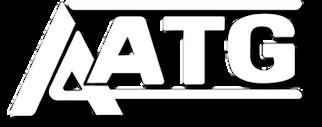
AATG President Angelika Becker takes a look back at the 2025 IDT in Lübeck and prepares for AATG’s 100 year celebration and future conferences
The DEI Committee shares two insightful interviews with students from different backgrounds
A recap of our summer programs, including student testimonials
Plus: AATG welcomes a new staff member, multiple CfPs, Honor Society news, and more!
Have regional news to share with the national AATG? Submit an AATG chapter story to www.aatg.org/newsletter

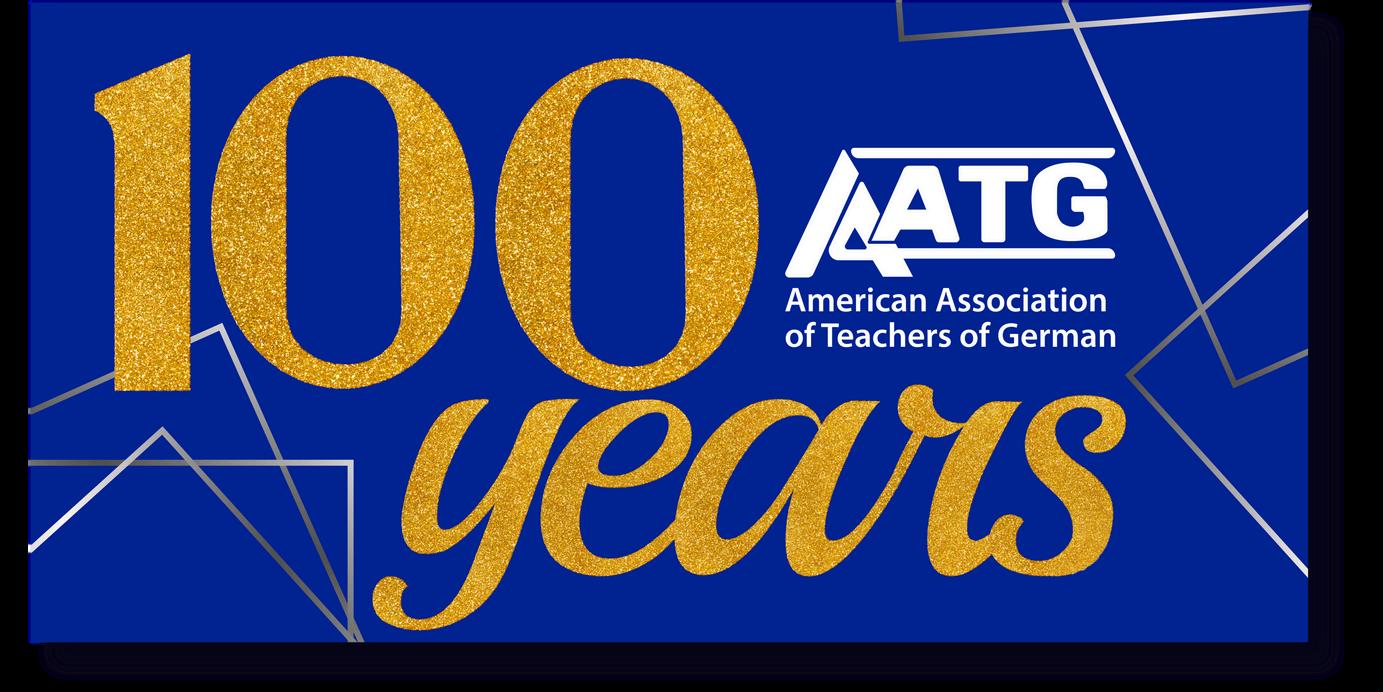
July 11-14, 2026
AATG is pleased to announce that we are now accepting proposals for our 2026 conference, AATG@100: Forging the Future!
Proposals may be related to any area of language, literature, culture, pedagogy, or linguistics of the German-speaking world.
Presenters can select one of the six areas of focus in their proposal:
Advocacy/Maintaining Enrollment
Proficiency and Assessment
K-16 Articulation
Multi-Level Classes/Differentiation
Innovative Technologies in the German Classroom (example: AI or other innovative technologies)
Open Area Focus (examples: service and community based learning, organizing exchanges)
We welcome three types of sessions for the 2026 Conference: Workshops, Traditional Presentations, and Panel Discussions. To read more about session types, proposal requirements, and presenter information, and to submit your proposal, please review the Call for Papers.
Proposals are due by December 15, 2025. Pr be current AATG members in 2026 and regis conference in order to present.

Deadline: December 15, 2025



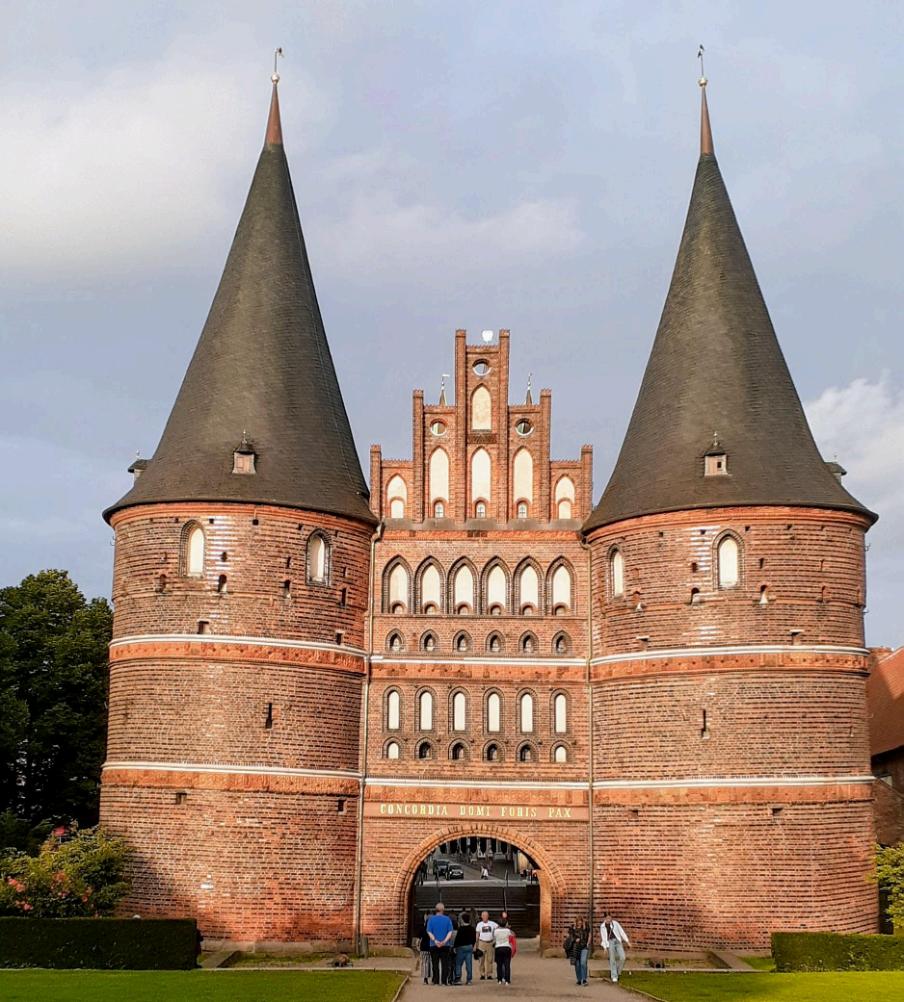
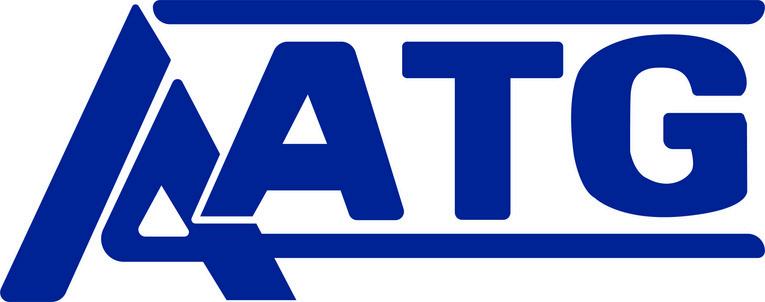
Wie immer, war der Sommer viel zu kurz, aber hoffentlich habt ihr euch gut erholt und neue Kraft geschöpft, die ihr ganz sicher fürs neue Schuljahr braucht.
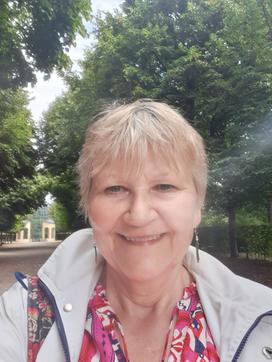
Ich habe verfolgt, dass viele von euch mit euren Lernern in Deutschland und Europa unterwegs wart, viele Erlebnisse hattet und die Schüler*innen neue Freundschaften geknüpft und bereits bestehende Kontakte vertieft haben.
Auch ich war in Deutschland und habe die AATG bei der Internationalen Deutschlehrertagung in Lübeck vertreten. Diese Tagung war ein wunderbares Erlebnis! Auch ich habe alte Kontakte vertieft, mich mit vielen meiner USA Kollegen zwischen den Workshops und beim Goethe Empfang unterhalten und viele neue Leute kennengelernt Ich habe mit Mia aus Schweden über unsere gemeinsamen Herausforderungen gesprochen, mit Denise beim Frühstück über Gemeinsamkeiten zwischen den USA und Argentinien geplaudert und mit Liz und Rene beim Mittagessen gefachsimpelt. Aber die Tagung war nicht nur Arbeit, bei abendlichen Empfängen und Treffen war auch Zeit, noch mehr neue Leute zu treffen.
Aber der Sommer war nicht nur Spaß und Freude, sondern auch viel Arbeit. Ende Juni hatten wir ein Board Meeting in Madison, Wisconsin. Wir haben Hotels und das Konferenzzentrum besichtigt, denn unsere 2027 AATG Tagung wird in Madison stattfinden Das Konferenzzentrum wurde nach Plänen von Frank Lloyd Wright erbaut und befindet sich direkt am Mononasee. Eine traumhafte Umgebung. Das wird euch sicher gefallen. Also, schreibt es auf eure Kalender, im Herbst 2027 sehen wir uns bei Cheese Curds in Wisconsin.
Auch die Planung für Juli 2026 nimmt jetzt konkrete Formen an Aber da seid ihr alle gefragt: Wir brauchen eure Beiträge, Sektionen, Workshops und Teilnahme. Das Tagungskommitee freut sich auf eure Vorschläge! Bitte reicht sie hier ein.


Noch eine wichtige Aufgabe, die diesen Herbst ansteht, sind unsere Wahlen.
Bitte haltet die Augen offen nach der E-Mail und den Erinnerungen und gebt eure Stimme ab. Ihr trefft die Entscheidung, wer euch vertreten soll.
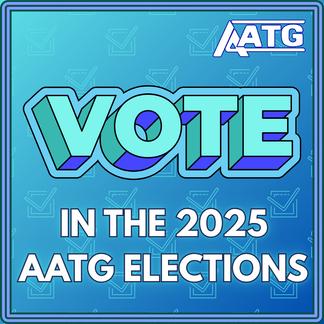
Schließlich habe ich noch eine Bitte an euch alle: Unsere Mitgliederzahlen schwinden! Wir brauchen Nachwuchs! Kennt ihr neue Deutschlehrkräfte, die noch nichts von uns wissen? Unterrichtet ihr einen Methodik-Didaktik Kurs an der Uni und habt Student*innen, die noch keine Mitglieder sind? Habt ihr Lehrassistent*innen, die von AATG profitieren könnten? Ja?! Dann schickt sie bitte auf die Website, damit sie Mitglieder werden können, damit sie ein Teil dieser tollen Gemeinschaft werden und damit sie alle Vorteile in Anspruch nehmen können, die AATG ihnen bietet
Zu guter Letzt wünsche ich euch ein wunderbares, erfolgreiches Schuljahr, hoffe euch bei virtuellen Veranstaltung und bei unserem Treffen in New Orleans zu sehen. Um wie immer habe ich euch für Fragen, Anregungen und Beschwerden natürlich ein offenes Ohr.
Mit bestem Gruß
Eure Angelika

AATG President
Deutschlehrerin i.R. angelikabecker@att.net
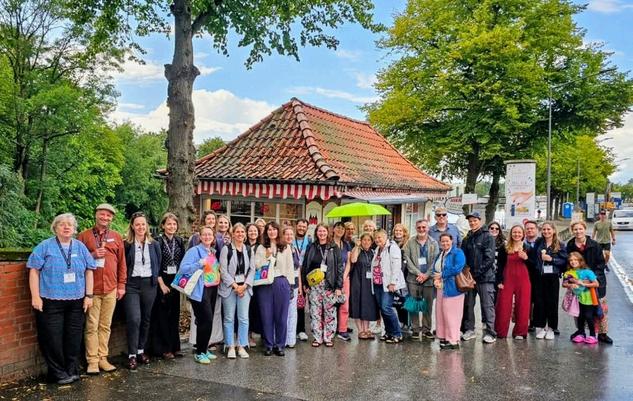
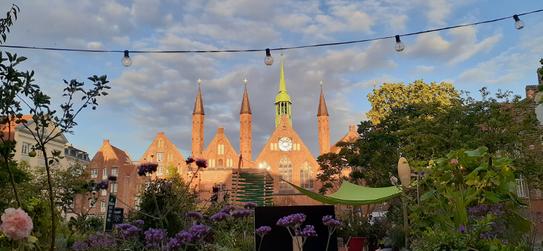
Dear Colleagues,
In this edition of the DEI Corner, the AATG DEI Committee shares excerpts from two interviews with students of Jewish
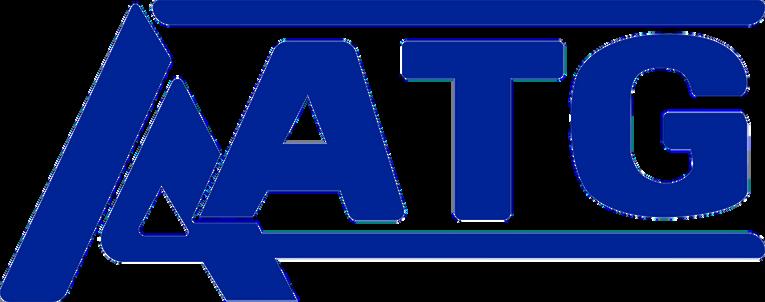
(M) and Muslim (A) backgrounds. These conversations explore how religious identity intersects with the experience of learning German, both in U.S. classrooms and abroad. Importantly, these students do not speak for entire communities. Instead, they offer personal, nuanced reflections that highlight the diversity within religious identities and the importance of inclusive pedagogical practices
We invite educators to consider how these voices might inform their own teaching and classroom environments. The full interviews are available via the QR code and link provided at the end of this article.
M (Jewish student):
“Obviously, there's discussions of the Holocaust I think that's the most obvious thing when, you know, when we discuss the Holocaust For a lot of people, it's just something like, oh, that's something terrible to happen. For me, it's something that almost happened to my great grandparents, like they escaped right before. And it happened to my people. And so there's a feeling of like, we, like, we often say “intergenerational trauma” within the Jewish community, at least. We say like, because we can feel the trauma, even though it didn't happen directly to us. So it's definitely harder, like, when learning about the Holocaust, like, I'm very interested in it, and I think it's so important that we have Holocaust education But as a Jewish student, it is sometimes harder to hear those things. Also, in relation to, especially what's going on right now, with the conflict in the Middle East, a couple of the movies that we've watched have – that has come up. And so there was one where I saw, and you know this because it was in German 3, where there was a keffiyeh on one of the background characters, who was like fighting for liberation, fighting for freedom And so that was just kind of jarring as a Jewish student, because I've also seen people wearing the same thing and chanting anti-Semitic hateful rhetoric. So there's that. And then also, when we watched The Baader-Meinhof Komplex, I actually couldn't, I couldn't finish that movie I had to step outside for a lot of it, because it was so the characters reminded me a lot of the protests that were
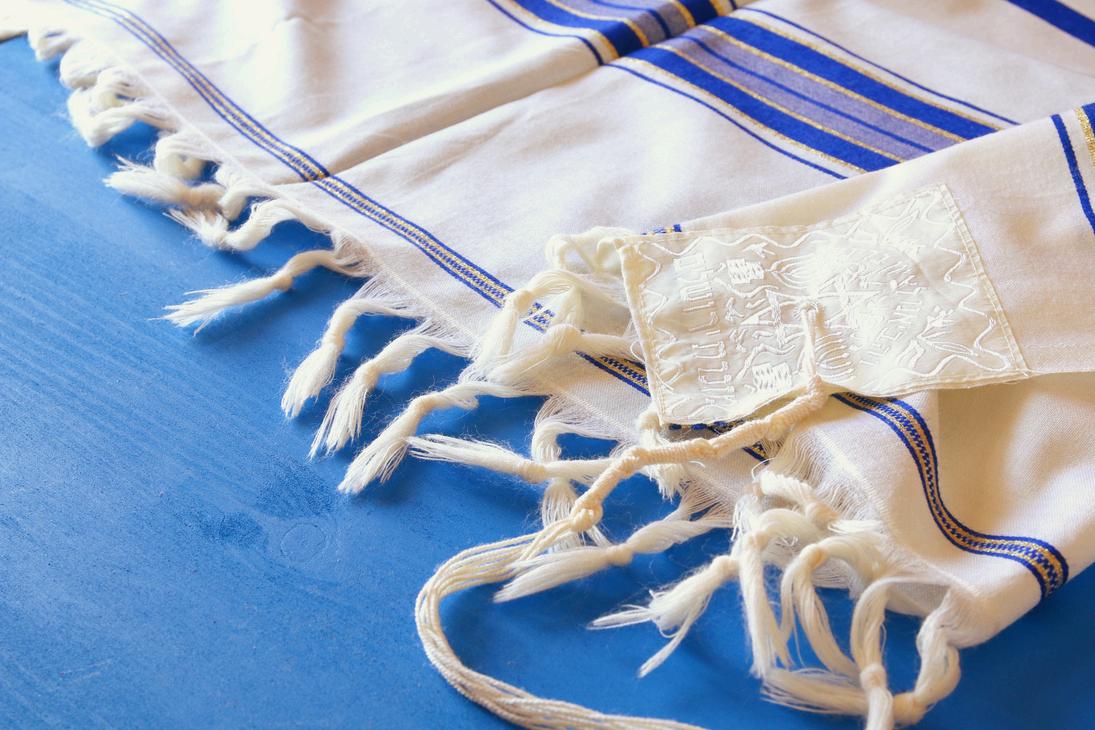
happening on campus, just a more… the characters were a more violent version. And so I felt that hatred that was so familiar from just walking around on campus and being afraid to, you know, wear my Magen David, where I’d be openly Jewish, you know. So eventually just watching all of that on the screen became too much and I had to step outside So I think that was definitely a different experience for me because I'm Jewish. ”
“Obviously Germany has a huge history with everything that happened in the world wars and all of the atrocities that were committed against not just minorities, but specifically Jewish people And I think that's an interesting thing to talk about right now, because growing up, when I was in school and we were studying world history, and we were studying our country’s history, the world wars were obviously a big part of that. And I don't think that there's a lot of [...] sense of guilt in a lot of ways, but they also don't feel like that understanding of what fully happened there because for a large portion it wasn't part of their history, and they were dealing with other things happening at the same time. So, when I thought of the world wars like I've always been able to think of them a bit more objectively [ ] And I think now, with everything going on, there is still a sense of hesitancy talking about or advocating for Jewish people, or just because of everything that's going on in the world. So, I think, it was interesting for me to go from a situation of somewhat objectiveness in this, but now I feel more emotionally connected to the issue. And I have great friends and family that are of various different ethnicities and religions and talking to them, too, I feel this more emotional connection, but also I feel the hesitancy from a perception point of view I understand what it looks like, for someone that's explicitly Muslim to talk about these things in the political climate today, whereas I don't think that that hesitancy existed even 5 years ago, at least when I was growing up. [...] But yeah, I'm always aware of what it looks like for me to talk about the World War right now, or for me to talk about Jewish oppression, or for me to talk about even Muslim oppression. And that's hard. We went to the NS documentation center in Munich, and there was a lot of like ‘Ah! Incredible!’ You know, very visceral images of what was happening, and it was a very emotional day But what I remember is there was a court that said something like … ‘it happened, and therefore it can happen again’. And in our reflections that day I was going to write a longer paragraph about like it is happening in a lot of ways right now. There is active war in the world, and there's just so much unrest and things that people are not really thinking about on the day-to-day. And then I couldn't write it because I don't know, I feel hesitant to put this out into the world. Just my thoughts on the parallels between what was happening in the 1940s and what's happening right now and then I think, it's because it's a nuanced issue.”

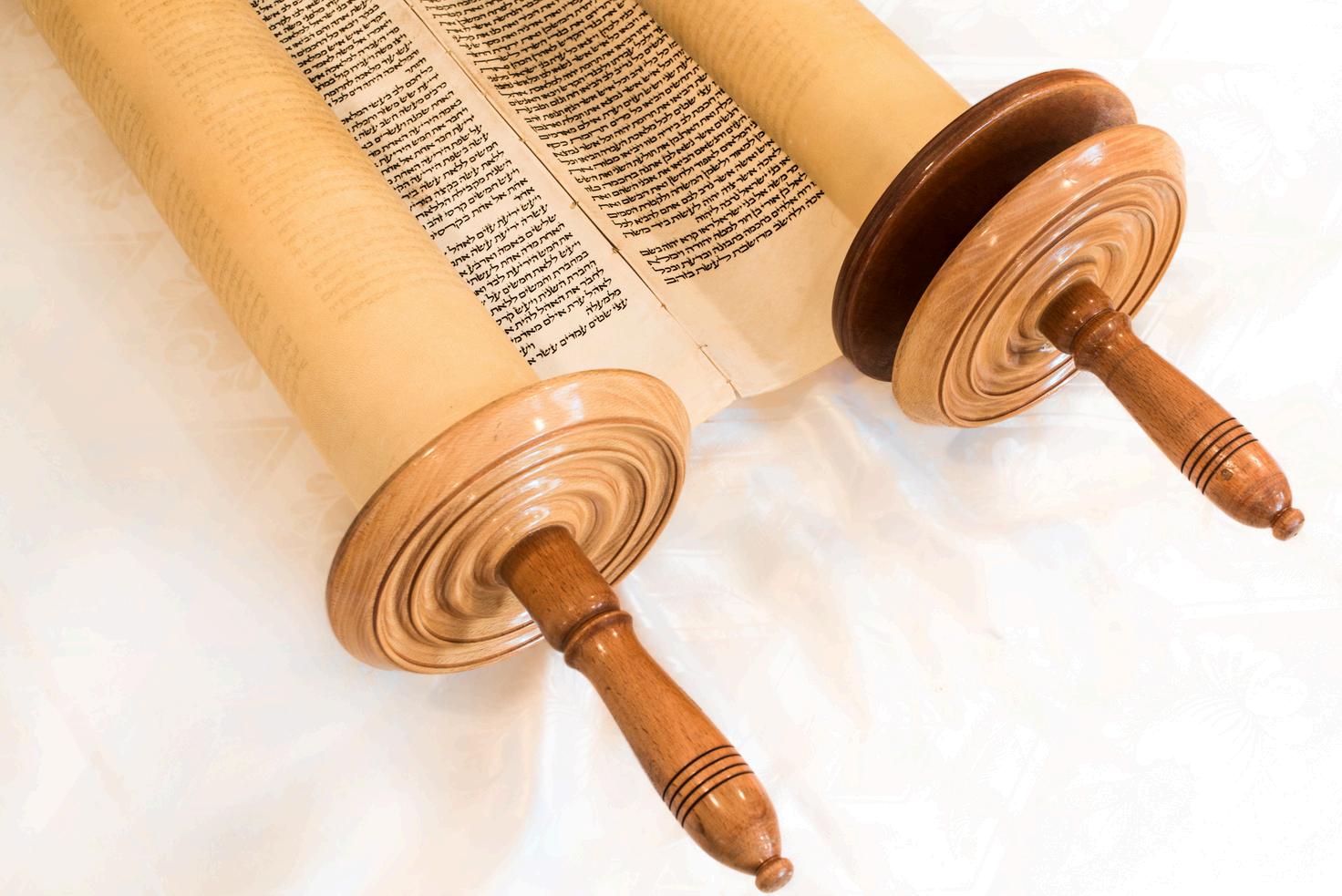
M:
“I don’t speak Yiddish, but I know a decent amount of Yiddish words So when learning German, sometimes I’d hear a word and think, ‘Oh, I know what that means I’ve heard it since childhood.’ Like schmutz. When I heard schmutzig, I was like, ‘Oh, dirty,’ because we always say, ‘Get the schmutz off your face.’”
A:
“I remember in our class, we talked a lot about the idea of Heimat, and how the German interpretation of the word Heimat is being changed because there's such a huge amount of immigration from the Arab world, from the Turkish world, and those are very much shaping the culture. I don't think that I was in any German city or any Austrian city where I didn't see Turkish people, Arab people, Muslims. There were multiple mosques in every city that I went to on Fridays, and they were packed; like there was a huge amount of influence, the Döner was everywhere, all of these small things that are very much imports from the Arab world, but they're so settled in the German culture [ ] I think that there's a lot of people that are Muslim or ethnically Arab, and if you ask them, they'll be like ‘You know, German was the first language for my grandfather, like we've been here for centuries’. Or centuries might be an exaggeration [...]. So, I feel like I was able to relate to those experiences of being Muslim in a predominantly nonMuslim area, just like coming to the US. And the way that they were talking about their language I spoke to some people at the mosque, and then just in general, when we were doing readings, and like that, reference would come up So, I think that it shaped my experience in terms of understanding the culture a bit closer. I think, maybe compared to some people, because I was able to understand the Muslim element of being in a new country, in a new environment – not to say that I don't think people couldn't relate to that, because it is a story of immigration at the end of the day – but I there's a lot of nuances that maybe I was able to slightly better relate to, or slightly better grasp when it came to that ”
M:
“I think because there are a lot of Jews on campus within that specific community, I feel very accepted for who I am But also just when walking around campus, sometimes I'm not necessarily sure. Or like when I'm talking to someone, I don't disclose immediately that I'm Jewish until I know it's safe. So I would say the campus climate isn't, for Jewish students, I would say it isn't necessarily open and accepting. And especially two years ago, it felt very hostile. It's gotten better, but two years ago, it was very difficult to be a Jewish student on campus. And I can also say, because I also come from a queer perspective, I have felt more discrimination based on my religion than on my sexuality at the campus ”
“The German department has been more accepting than the campus as a whole. I felt safe enough to say, ‘I’m off this week something difficult happened.’ That made a difference.”
A:
“I think that words like islamophobia, bigotry, antisemitism, all of these are big words and they're very big concepts or they're very big acts of hate And I think people will use them more casually than they are, you know, people will be like ‘That person is islamophobic, that person is antisemitic’ and obviously, I admit that there are actions that could be categorized, but in general, these are big titles to put onto people, to put onto situations. And I just kind of hesitate to think that way, because I think it reduces the nuance from any situation if you call someone islamophobic, and then you're unwilling to listen to the rest of their speech, because in your mind it's, you know … I think, that there should always be at least some space for open dialogue. So, I would never say that the campus environment is islamophobic … in my experience it's not been Islamophobic. I would actually say, I feel like in terms of the students, the campus is very supportive, just with my friends, but also people that I know that maybe hold like different views politically than I do ”
M:
“I would say there are so many different people from different backgrounds in your classroom, and everyone has a different identity and a different story. And sometimes they just need someone to hear their struggles and be open to them, even if you disagree. And yeah, because at the end of the day, one thing that I've been constantly saying the past couple years is we're all human. And we all have difficulties and struggles. And at the end of the day, we all just want to be treated like humans.”
A:
“I think I've had such incredible teachers that have done a great job of bringing to light the issues of immigration, the issues of Arab assimilation, Turkish assimilation, and Muslim life in Germany. That's been at the forefront of a lot of our classes, because it is such a big part of the culture. I don't know if there's teachers that intentionally choose to ignore that or talk about it less because of what's happening right now, or just because it's not people's understanding of that traditional German high culture, but I would encourage discourse over that I think it's such a big part of what's happening in the German speaking world right now. As someone who was in Germany two weeks ago, it's such a big part of what I saw on a day-to-day basis. It's a big part of how the students over there feel. And it's more multicultural than we think. And [...] the definition of that Hochdeutsch culture is changing to be inclusive of people that are immigrants or who have immigrant backgrounds So, I would encourage discourse over that. I think there's a lot of nice ways to do it, and ways that every student feels included in that conversation and ways where it doesn't reduce what Germany has been through, or what Austria and the entirety of Europe has been through. But there are ways to connect to what's happening right now, and bring that discourse of what does oppression look like, how can conversations
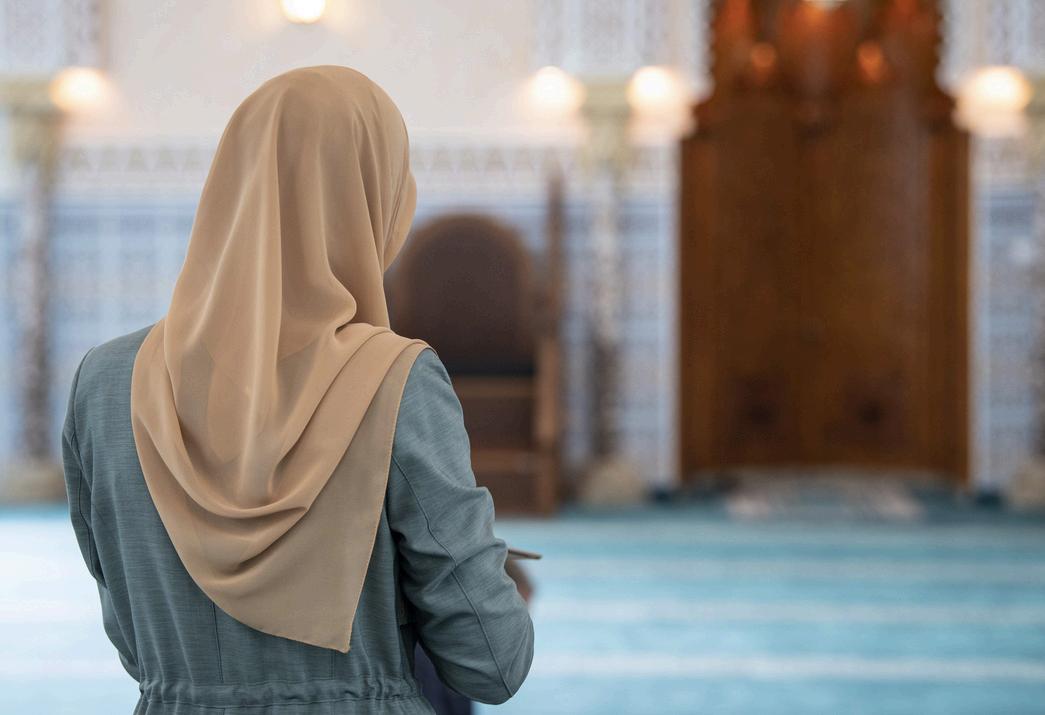
on repression be framed in the German voice, and bringing that forward. I think students are more open-minded than maybe some teachers think. So that's my big advice is to is to just talk about things. I think talking is the greatest medium and discourse is a great way of embodying that.”
These interviews remind us that German classrooms are not neutral spaces, they are shaped by the identities and experiences of the students within them. As educators, we have the opportunity to foster environments of empathy, openness, and belonging.
Read the full interviews here:
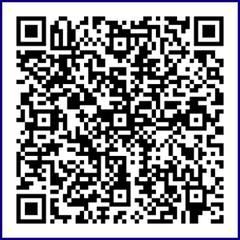
AATG is happy to announce a new member of our national team! Matthias Hausman started at AATG on September 2, 2025, as the new Logistics Coordinator and Programs Assistant, bringing a background in international exchange, German Saturday Schools, engineering, and cross-cultural communication.
A former Fulbright Teaching Assistant in Dresden Germany, Matthias holds a Master of International Affairs from Penn State and an undergraduate degree in Mechanical Engineering and International Studies from the Rochester Institute of Technology. While in Germany, Matthias worked with the German American Institute of Saxony, Fulbright Germany, and the U.S. Consulate in Leipzig to promote American exchange programs at schools across Saxony. Matthias also works with German Saturday Schools in the U.S., currently serving as the principal of the Immanuel German School in Philadelphia PA, and has worked with the Zentralstelle für das Auslandsschulwesen (German Central Agency for German Schools Abroad) on their efforts to support German Saturday School alumni engagement in the U.S. He speaks fluent German, some Russian and Latin, and can understand the Sächsisch German dialect. Outside of work, he enjoys spending time with his family, friends, and cats, traveling, and hiking (especially in the Sächsische Schweiz).
His email is matthias@aatg.org, and we encourage you to reach out to him with any questions about Honor Societies or purchases in the AATG Store.
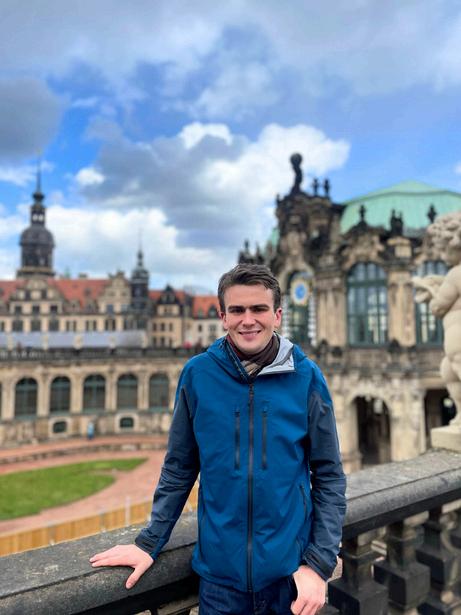

Dear Friends of German,
Herzlich willkommen zurück!
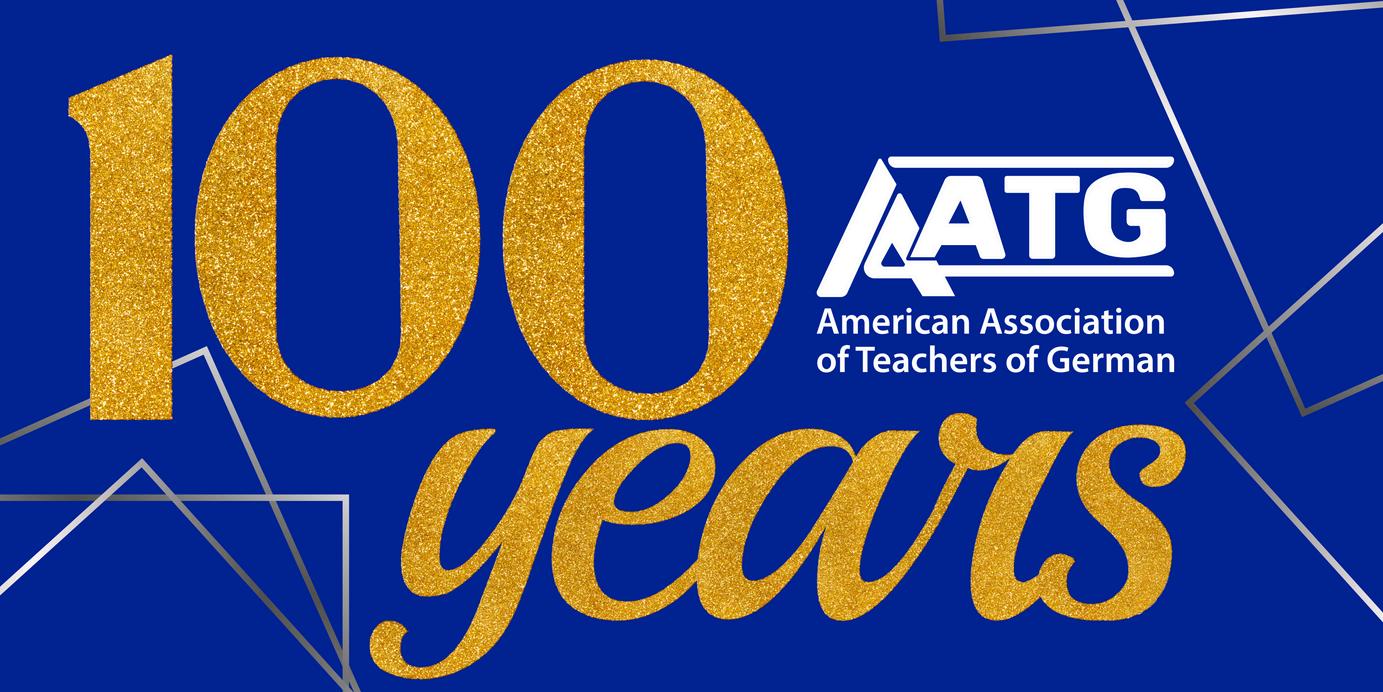
Welcome to the start of a new academic year! As you prepare your classrooms and launch the lesson plans, you stand ready to once again ignite curiosity and a passion for German language and culture in your students. Your work is invaluable since so many students never get the chance to learn a language in the US We hope that the passion that was sparked in you is carried forth into the future!
This year is particularly special as we look ahead to a monumental milestone: the 100th anniversary of the American Association of Teachers of German (AATG) This upcoming centennial is a powerful testament to the enduring legacy and collaborative spirit of German teachers across the country. Our theme is Forging the Future and it 's a time to look back as well as forward. It is also high time for us to celebrate our shared history, reflect on our collective achievements, and envision an even brighter future for German studies.
In the spirit of this celebration and looking toward our next 100 years, we are launching a simple but powerful initiative. We encourage each and every member to bring a friend and colleague to join us at the AATG. Think of someone in your district or a neighboring school or university who could benefit from our community ’s resources, advocacy, and camaraderie Our strength truly lies in our numbers and our shared expertise By expanding our network , we amplif y our voice and enrich our profession for everyone involved.
Herzlichst,

Michael R. Shaughnessy Executive Director, AATG mike@aatg.org




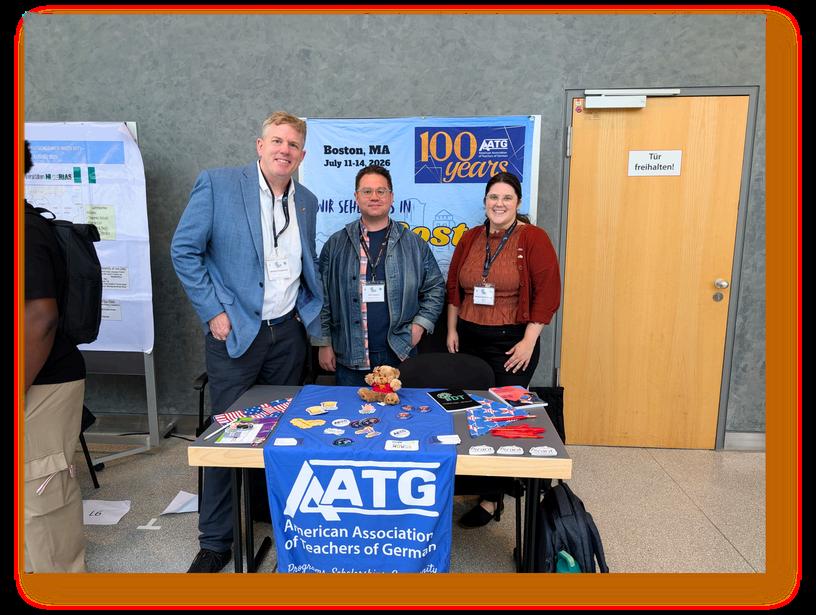
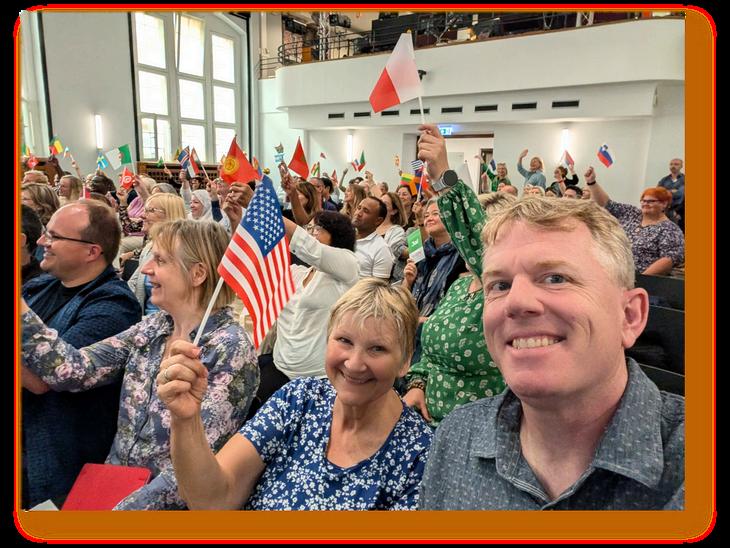
Sie unterrichten Deutsch oder forschen dazu?

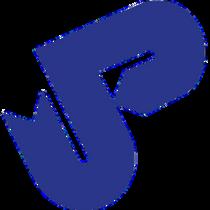
Teilen Sie Ihre Ideen, Erkenntnisse und Erfahrungen mit der internationalen Fachgemeinschaft!
Die Fachzeitschrift Die Unterrichtspraxis / Teaching German (AATG) veröffentlicht Artikel in deutscher und englischer Sprache, online und weltweit zugänglich.
Gesucht werden:
✎ Research Articles – empirische oder theoretische Studien zum Deutschunterricht (bis 8.000 Wörter)
✎ Praxis Articles – konkrete Unterrichtsideen, Strategien und Best-PracticeBeispiele (4.000–8.000 Wörter)
✎ Forum Articles – kurze, pointierte Essays zu aktuellen Themen (1.500–2.000 Wörter)
Alle Beiträge (außer eingeladenen Rezensionen) durchlaufen ein Peer-ReviewVerfahren.
Bringen Sie Ihre Stimme in die Diskussion ein – und gestalten Sie die Zukunft des Deutschunterrichts mit!
❍ Mehr Infos: Unterrichtspraxis@aatg org
❍ Einreichung: https://submission.wiley.com/submission/dashboard? siteName=TGER
Die Unterrichtspraxis / Teaching German ist eine Publikation der American Association of Teachers of German (AATG).
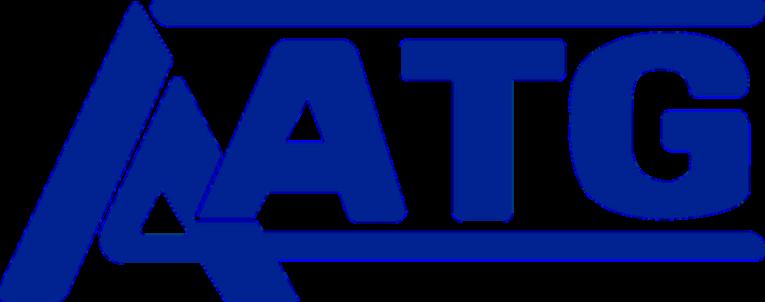
Die Unterrichtspraxis / Teaching German AATG Centennial Year
In 2026, the American Association of Teachers of German (AATG) celebrates its 100th anniversary. To mark this milestone, Die Unterrichtspraxis / Teaching German invites submissions for a special issue titled “Reflections and New Directions.” This issue presents an opportunity to reflect critically on the development of German teaching, especially in the United States, while offering forward-looking perspectives on the future of our German language education.
We welcome two types of submissions:
1. Research and Praxis Articles (6,000–8,000 and 4,000–6,000 words, respectively)
These articles should engage with the archive of Die Unterichtspraxis / Teaching German and offer informed analyses of relevant pedagogical, curricular, methodological as well as institutional and sociopolitical trends and developments in German education. Topics may include:
➢ Studies of trends in teaching methods (e.g., grammar-translation, communicative approach, multiliteracies, postmethod)
➢ Review of debates on the role of culture and/or regional variation and variety in language teaching
➢ Changing rationales for learning German (e.g., heritage, career, literacy, study abroad)
➢ Varying challenges such as declining enrollments or changing university priorities
➢ The changing role of teaching materials and resources, such as textbooks, workbooks, as well as audio, video, and digital resources
➢ Changing views on and implementation of assessment
➢ The place of social justice and decolonial frameworks in German language education
➢ The use of analogue and digital technologies in language learning
Each article must take a diachronic view by comparing or tracking trajectories and development over time. Articles in this Centennial Issue need to reference and discuss at
least three articles from this journal. Article authors may revisit their own article(s) in Die Unterrichtspraxis / Teaching German
In addition to these narrative reviews, we also encourage the submission of replication studies, qualitative and quantitative meta-analyses, state-of-the-art review articles All of these also need to be based at least in part on articles published in this journal over its 58-year period.
2. Forum Articles (~2,000–4,000 words)
These concise, focused essays should engage with a specific article, debate, or theme from Die Unterrichtspraxis / Teaching German and use that as a springboard for envisioning the the future of the field (or aspects thereof). Forum Articles may be reflective, polemical, or practical They ought to address contemporary challenges and/or opportunities in German teaching and present a potential way forward. Possible directions include:
➢ How past innovations might inform future curriculum design
➢ Reimagining teacher training for the next generation
➢ Responding to the impact of AI, translation tools, and other new technologies
➢ Creating inclusive, interdisciplinary, and globally and personally relevant programs
➢ Building sustainable partnerships across institutions and communities
We encourage contributions from all levels of the profession K–12 educators, community-based instructors, graduate students, and university faculty and especially invite young scholars to share bold, pragmatic ideas for the next century of German teaching.
Submit an abstract of not more than 200 words to express your interest by October 1, 2025
In the abstract , indicate your envisaged article type, a precise topic, a summary of your approach and the findings, and a list of the articles in Die Unterrichtspraxis / Teaching German that you will use Full manuscripts are due by March 1, 2026, but earlier submissions are strongly encouraged. The articles will be published continuously upon acceptance. The virtual Centennial Issue will be compiled in the anniversary year 2026.
➢ Submit abstracts unterrichtspraxis@gmail com by October 1, 2025
➢ Read the author guidelines at https://onlinelibrary-wiley-com.libproxy.sdsu.edu/page/journal/17561221/homep age/forauthors.html
➢ Submit manuscripts via our online portal at https://submission wiley com/submission/dashboard?siteName=TGER
➢ Indicate “Centennial Issue” in your submission
➢ All submissions must conform to journal style and length requirements
➢ Publication date: continuous publication upon acceptance throughout 2026
Article types:
Forum Article
A Forum Article is a type of scholarly writing characterized by its brevity, typically between 1,500 and 2,000 words, including references These articles are solicited through a call for papers on a specific topic with a few parameters or guidelines Forum Articles serve as a platform for researchers and teachers to express their views, insights, and opinions on a particular subject They may differ from Research Articles in several ways:
● Informal tone: Forum Articles are less formal in tone compared to research papers. Authors may use a more conversational style to engage with the readers
● Engagement with relevant issues: These articles are used to address current or pressing issues, challenges, or debates within a field of research and teaching. As a society journal, Die Unterrichtspraxis / Teaching German listens to the membership and formulates the call for papers accordingly Thus, they provide a forum for authors to offer their perspectives on timely topics
● Opinion-based: While Forum Articles must be based on research and evidence, they often incorporate the author's personal opinions and experiences. Authors may take a stance on an issue and advocate for a particular viewpoint.
● Shorter length: Forum Articles are concise, typically limited to around 2,000 words. This brevity allows authors to convey their ideas succinctly The whole rubric, normally in a single journal issue, then allows for multiple Forum Articles and diverse voices, perspectives, and approaches.
● Solicited contributions: Normally, a call for papers is issued to solicit contributions from interested authors Forum Articles often feature contributions from a diverse range of scholars and teachers, including established experts and emerging voices in the field
● Engagement with readers: Authors of Forum Articles may aim to engage with readers on a more accessible level. This can involve addressing practical implications, offering recommendations, or sparking further discussion and reflection among readers
Overall, Forum Articles play a valuable role in scholarly discourse by providing a platform for experts to share their insights, engage with current issues, and contribute to ongoing debates within their fields.
Praxis Article
A Praxis Article serves as a valuable resource for German teachers, professors, and students in German Studies and/or in teacher training, by translating theoretical knowledge into practical action. It bridges the gap between theory and practice by offering insight, guidance, and real-world examples to help individuals or professionals implement theories or concepts in their teaching of German A Praxis Article:
● Applies Theory: The article starts with a foundation in theory or concepts but goes beyond mere theoretical discussion to show how these ideas can be applied in the classroom.
● Offers Guidance: Praxis Articles provide actionable steps, strategies, or recommendations to help individuals apply the theoretical knowledge effectively
● Shares Experiences: They often include case studies, examples, or reflections from German teachers who have successfully applied the concepts in their teaching.
● Addresses Challenges: Praxis Articles may also discuss common challenges or obstacles that teachers and/or learners of German might encounter and offer suggestions for overcoming them
It is important that Praxis Article provide evidence for the probable success of the procedure or approach discussed and that the specific educational or institutional contexts are made clear A good Praxis Article explains how its insight can be transferred to other educational and institutional contexts They are approximately 4000 words in length; however, they may be up to 8000 words including references.
A manuscript submitted as a Research Article to Die Unterrichtspraxis / Teaching German often has the following components:
● Research question or hypothesis, which sets the focus or purpose of the empirical study or theoretical exploration,
● Literature review, in which relevant literature and research is critically reviewed,
● Methods describe the research instruments, data collection and analysis methods, and procedures employed in the study,
● Results, presenting the findings of the study based on the data collected (this section might include statistical analyses, tables, charts, and other visuals),
● Discussion, in which the authors interpret the results and discuss them in the context of the research question or hypothesis,
● Conclusion, which might contain a summary of key findings, significance of the interpretation of the results for the field of teaching German, limitations of the study, and suggestions for future research
Research articles are approximately 8000 words in length, including references

Welcome new chapters!
Welcome new chapters!
Est. July - September 2025
Est. July - September 2025
Delta Epsilon Phi
John F. Kennedy High School (Iowa Rho)
Fort Zumwalt East High School (Missouri Beta Beta)
McNary High School (Oregon Alpha Epsilon)
Pottsgrove High School (Pennsylvania Iota Sigma)
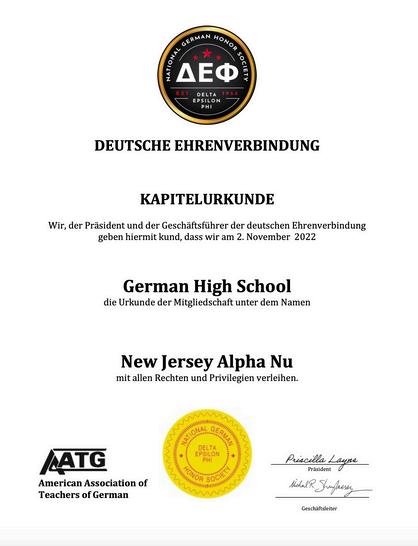
Gallatin High School (Tennessee Alpha Psi)
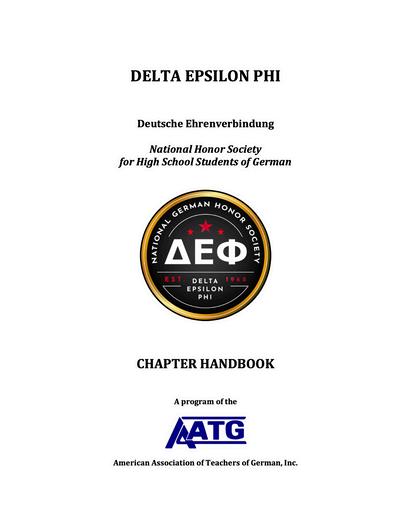
Independence High School (Tennessee Alpha Omega)
American Fork High School (Utah Chi)
Maple Mountain High School (Utah Psi)

Earlier this summer, we shared a new update to our honor society induction process! This update was designed to make it easier for members to operate their honor societies. The new name submission process allows members to keep a record of their inductions in their AATG account , will save time by requiring less information during form submission, and will automatically verif y membership in AATG when applicable
Interested in starting a chapter at your school?
Learn more and get started online: aatg.org /honor-society-faq


In 2025, a total of 128 students went abroad for three- to four-week study abroad stays through programs organized by AATG and our partners, PAD, AiB and Xperitas. We invite you to read more about each program and hear from some of our participants. All our study abroad programs are educational programs that include classes in Germany and homestays with German families, as well as excursions and visits to cultural and historical sites. Students also enjoy ample free time with their German and American peers and their host families to explore leisure activities in Germany.
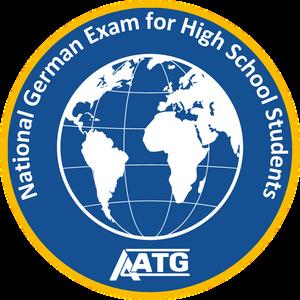
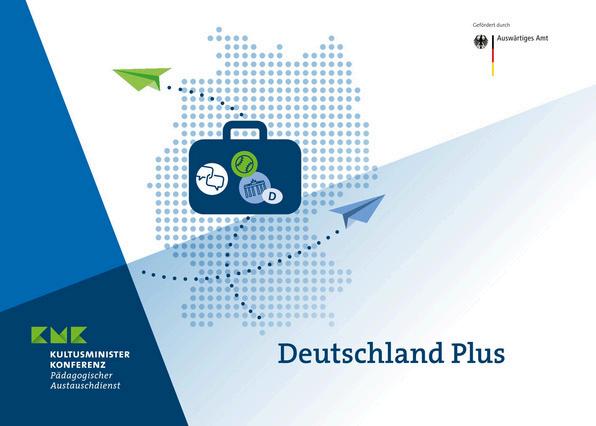
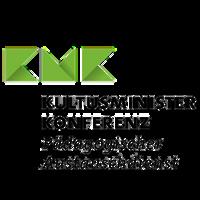
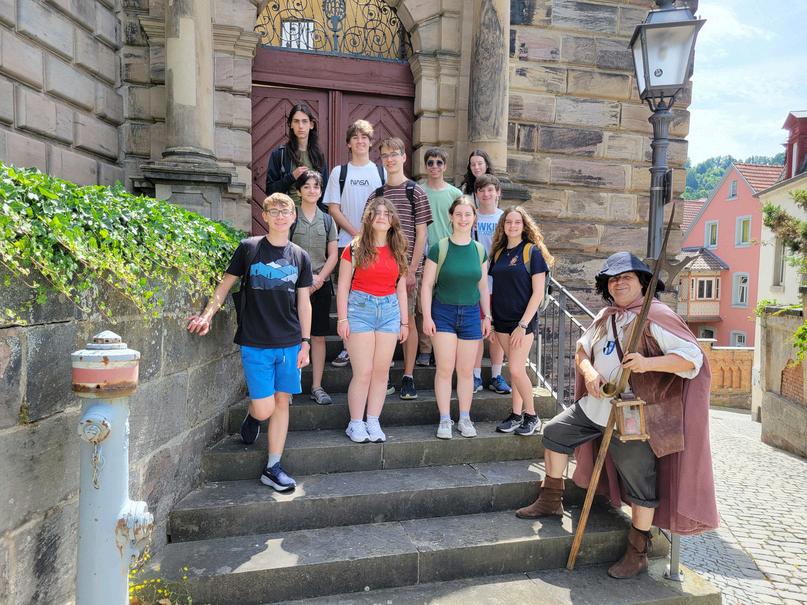
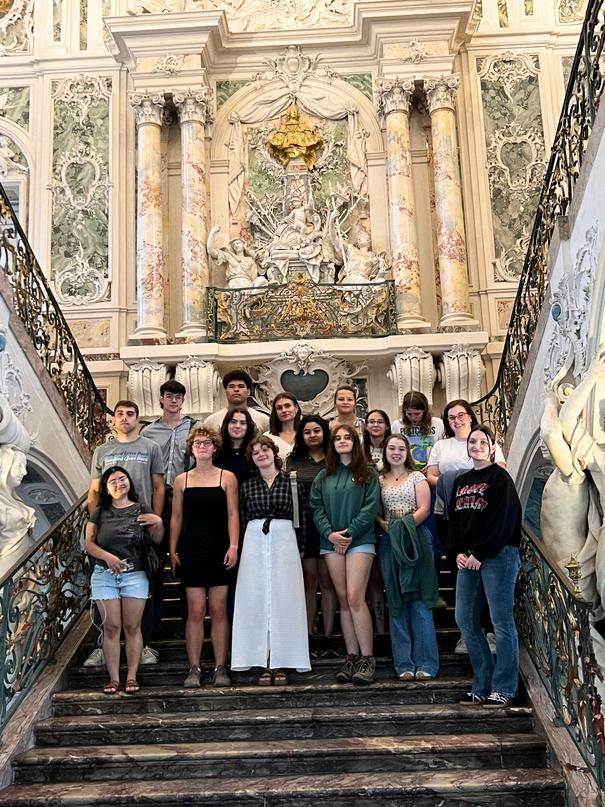
The National German Exam Scholarship (formerly Study Trip Award) has been offered for over 60 years by the Federal Republic of Germany, through the German Foreign Office (Auswärtiges Amt) and its Pedagogical Exchange Service (Pädagogischer Austauschdienst). Students who were part of the Deutschland Plus program traveled to Bremerhaven,, Hamburg and Kulmbach this summer with their fellow scholarship recipients and a US chaperone. The groups also visited Berlin and Bonn before returning home.
More information: nge.aatg.org/ngescholarship
Our Summer Study Program for High School Students is a three-week study abroad program which includes a two-week homestay with a German family and host sibling and one week of travel to a different German city – in 2024 and 2025, students explored the city of Nürnberg Students attend classes with their host sibling and with their US group, go on excursions, enjoy leisure activities in Germany and improve their German by being immersed in the German language and culture 24/7. They are accompanied by a US chaperone for the entire duration of the trip.


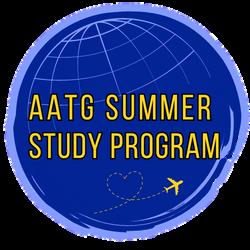
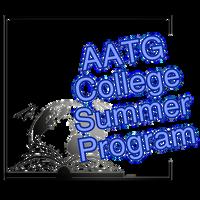
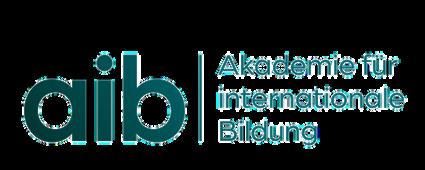
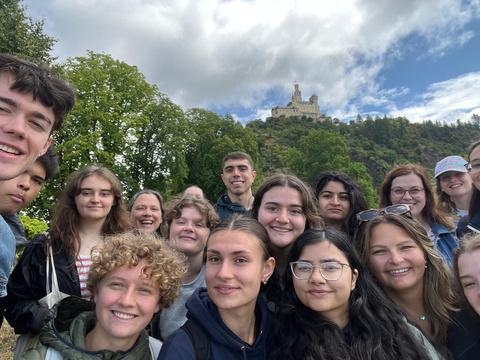
Our College Summer Program launched in 2022 and has now concluded its fourth year. In 2025, fourteen US college students traveled to Bonn, Germany, for a four-week stay, co-organized by our German partners, Akademie für Internationale Bildung (AiB) Accompanied by their academic director, Natalie Eppelsheimer (Middlebury College), students explored the Rhineland region on numerous excursions and study trips, and took German language classes as well as a cultural topics course in English. Students also got to enjoy a taste of authentic everyday life in Germany by staying with host families in the city of Bonn.
More information: aatg.org/college-summer-program
Our brand new AATG & Xperitas Summer Program for High School Seniors took off this year with students visiting the cities of Munich and Cologne, and experiencing life in a German host family in between. Seven students traveled to Germany for 16 days this summer, accompanied by seasoned chaperone, Christina McDade.
Check out her recap video and more information about the program here: aatg.org/aatg-and-xperitas-summerprogram-for-high-school-seniors
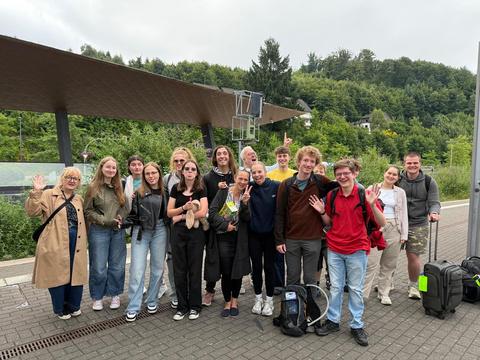
OUR HIGH SCHOOL SENIORS MEETING UP WITH THE COLLEGE GROUP IN BONN (RIGHT)
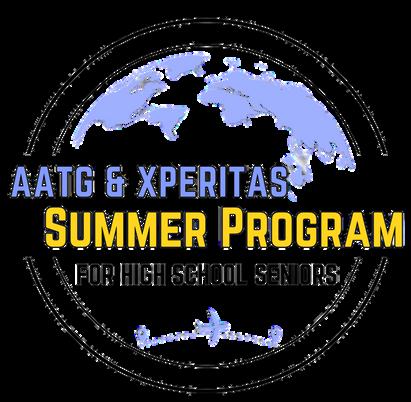

HIGH SCHOOL SENIORS AND HOST FAMILIES (LEFT)
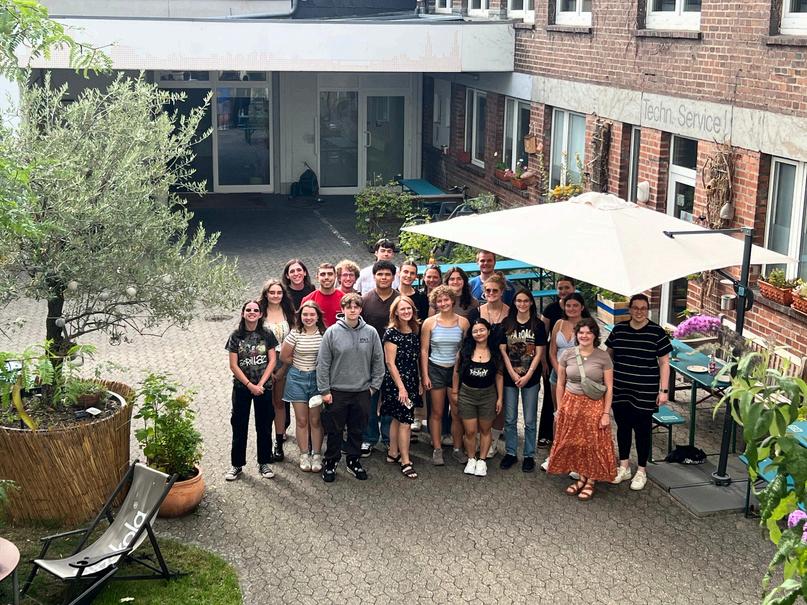
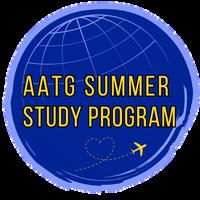
“I would like to thank the donors that aided me in going and experiencing Germany. Without you all I would have missed out on all the incredible food and fun adventures that Heidelberg and Nuremberg had to offer. I wish many more German-learning students can have the same, if not better, experience that I had in Germany and cement their love for the language and to entice them to experience something new and live with an open mind ” - Santiago W , Endowed Fund Scholarship Recipient
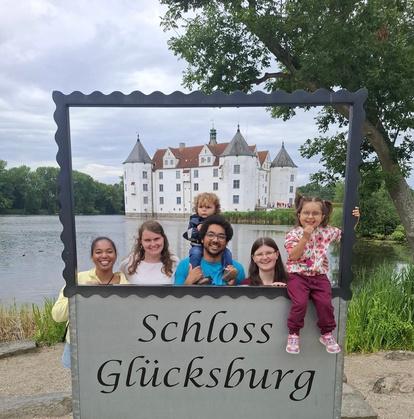

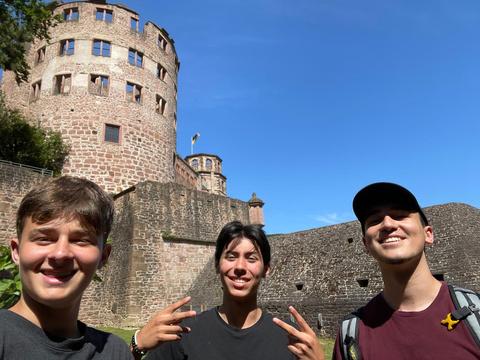
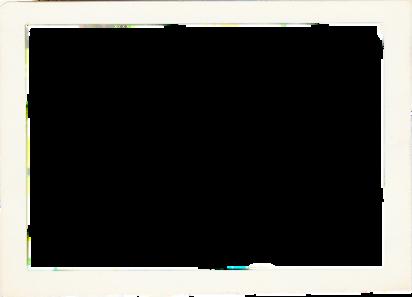
“Overall , I just had so much fun getting to know new people and a new language! I cannot believe how much three weeks could change someone’s life and I am so excited to keep on fulfilling my dream of seeing the world. Thank you donors, from the bottom of my heart , for jumpstarting my journey and giving me this possibility to broaden my horizons!”Chiza I , Audre Lorde Scholarship Recipient
“On the trip, I would say my biggest challenge was getting out of my comfort zone and really speak German in an immersive setting I was really nervous, but after a while it became comfortable and I didn' t really have to think about it . I learned a lot about German culture and the overall language, and also about myself.” - Samantha H., Endowed Fund Scholarship Recipient
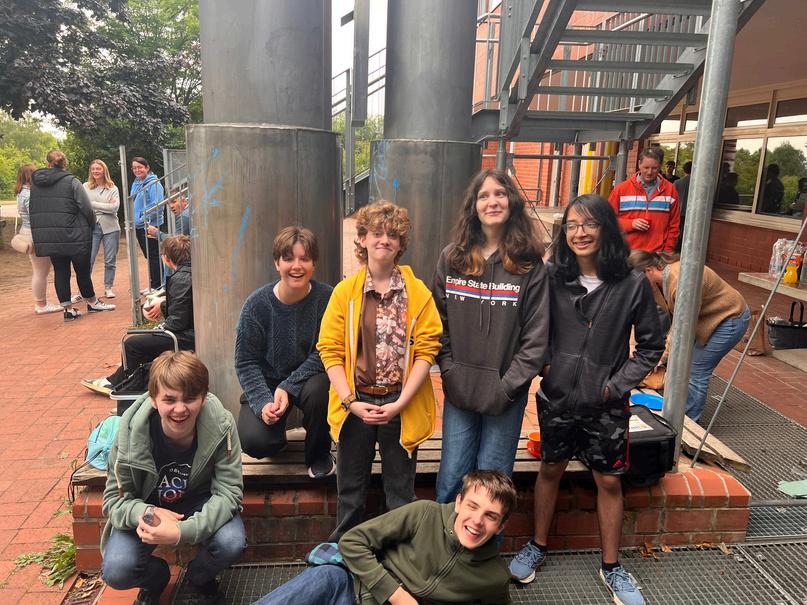

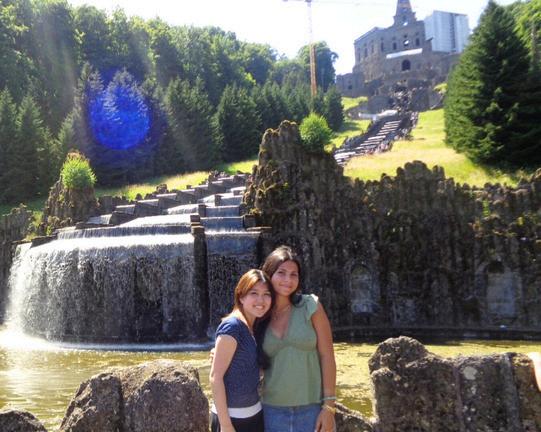

“My host family also gave me even more context on culture, which was highly informative [ ] I am still keeping contact with them but I think overall I have texted my host grandma the most – we' ve been having a grand time talking about our gardens.” - CJ T., Endowed Fund Scholarship Recipient

“If I had to describe my entire experience in just one word, it would be soul-stirring Honestly, a part of how I viewed life kind of changed during this trip And I don’t just mean that to say itthis experience truly did shape a part of me From the kindness and warmth I felt with my host family, to the strong bonds I built with the ENTIRE AATG Öhringen group, every single memory is one I’ll carry for life.” - Praha I., Käthe Wilson Scholarship Recipient
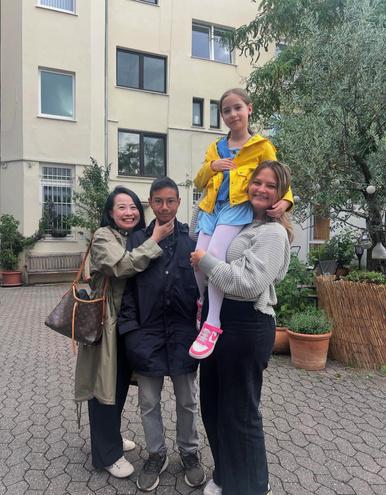
“I feel like I came home a better person I am more confident , more independent , and with a much bigger perspective on the world. My German skills are better than ever. This experience has solidified my passion for the German language and culture, and I'm excited to continue my studies. Thank you again to the AATG and the donors for this incredible opportunity.” - Savier L ., Endowed Fund Scholarship Recipient
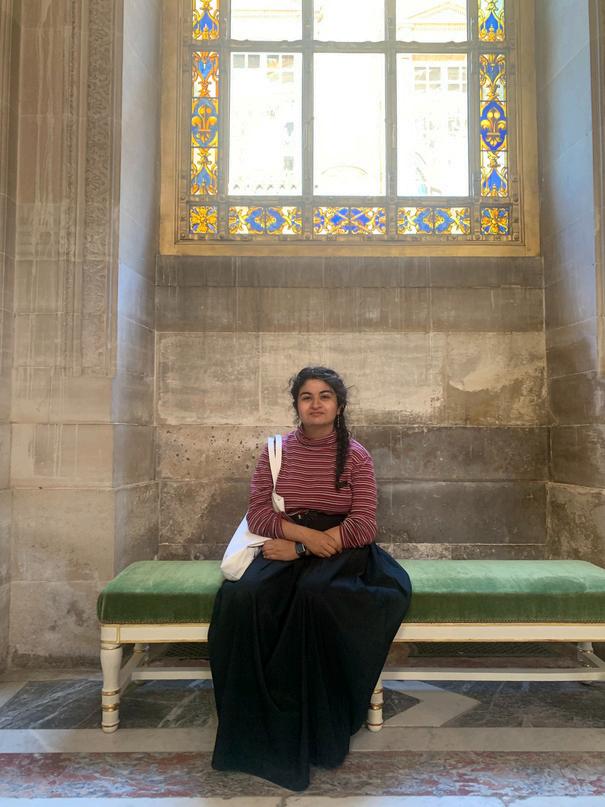

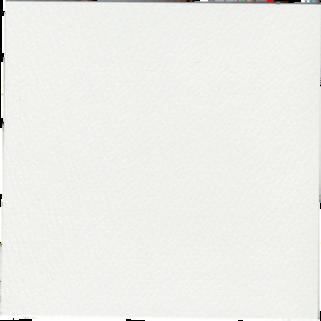
“ This life that I got to create could not have been possible without the generosity of the donors and everyone working with AATG, and there are not enough words in the German or English language to express my gratitude to you today Without this organization and its members, donors, and faculty, my life would not be what it is today [ ] What an immense privilege it is to have been given this opportunity of a lifetime and I am proud to say I took full advantage of this time in my life and the resources presented to me. Please continue to find value in your generosity and allow students of all walks of life to follow their dreams without fear of unreachable funding and support . You are life changers, and for that , I thank you from the bottom of my heart . ” - Jocelyn H., Endowed Fund Scholarship Recipient
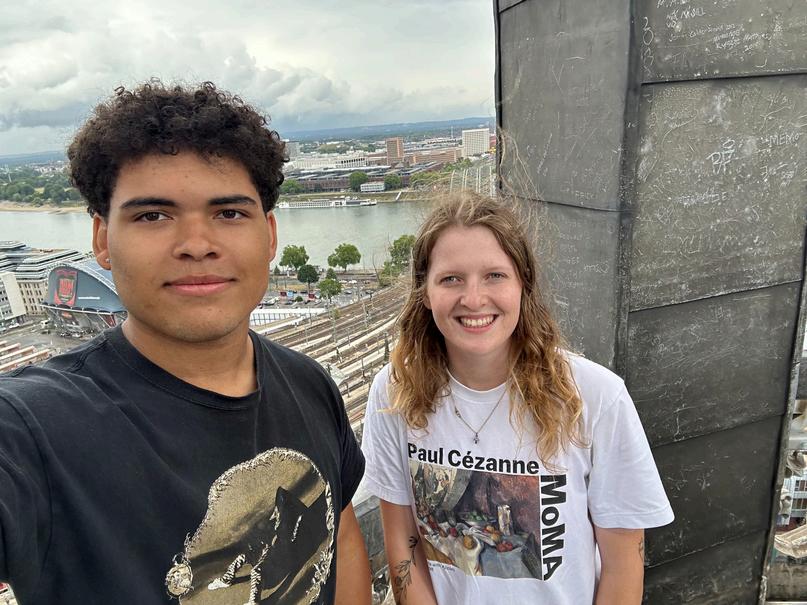

“ This experience is something I’d wish for anyone to experience at least once in their life, and it would not have been possible without the donations of generous donors to the program. I’ll always be grateful for this opportunity and hope the best for anyone pursuing the same. Thank you AATG and thank you Bonn!” - Jocelyn G., Endowed Fund Scholarship Recipient
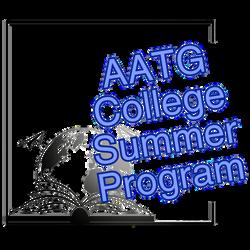
“I will be forever grateful to the Halle Foundation for making this journey possible I never imagined I would have the chance to take part in such an incredible experience, but thanks to their support , I did This trip not only strengthened my language skills but also opened my eyes to new possibilities!”Surbhi D , Halle Foundation Scholarship Recipient
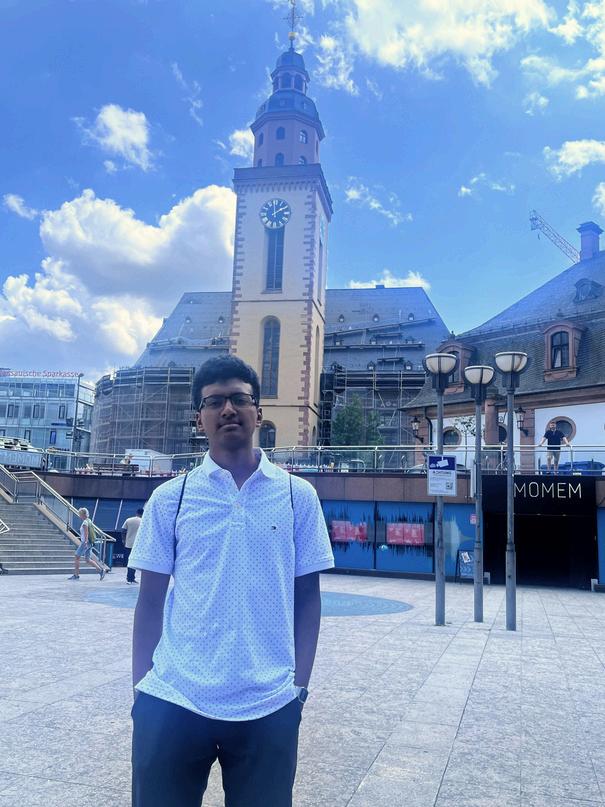
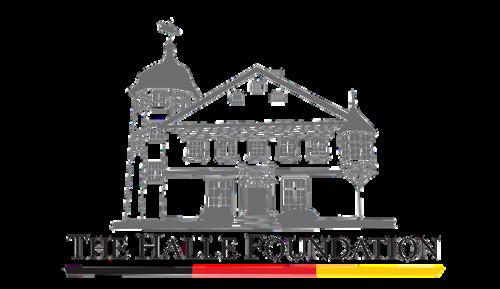

“I am extremely grateful for the donors at the Halle Foundation that enabled me to go on this trip to Wölfersheim! It was an extremely enjoyable experience from the people I met , food I ate, to the places I went I truly enjoyed every day I spent in Germany, and have learned so much about the language I have been learning This was a very memorable experience leaving me with memories that will last a lifetime!” - Navin M , Halle Foundation Scholarship Recipient
“ This trip made my love for German stronger than ever. I came home not only with souvenirs and photos, but also with more independence, a better sense of self, and a reminder of how much there is still to learn. I’ll remember these three weeks for the rest of my life.”Naa Besa A ., Halle Foundation Scholarship Recipient




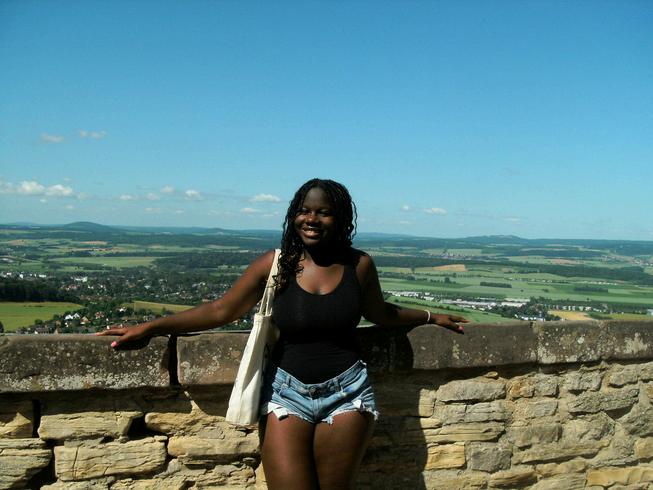
“ While it was sad leaving Germany, I know I left as not only a better German student , but a more worldly person with a deeper understanding of a culture that has so much to offer I cannot thank AATG and the Halle Foundation enough for helping to further my appreciation for the German culture and determination to continue learning the language. For anyone who's still unsure about whether or not to apply for this trip, believe me, it 's worth it . ” - Walt T., Halle Foundation Scholarship Recipient
“I am deeply grateful to the generous donors who made my German exchange experience possible through AATG Thanks to your support , I had one of the most transformative experiences of my life in Bovenden, Germany, a charming small town that perfectly captured authentic German suburban life.” - Ansh T., Halle Foundation Scholarship Recipient


by Francesca Cappetta Pittsburgh, PA (West Virginia/ Western Pennsylvania)
During the four weeks of the Internationaler Ferienkurs at the Universität Heidelberg, I participated in and earned a certificate for four courses:
DaF-Prüfungsvorbereitung mit Schwerpunkt Landeskunde
Lernende als Entdecker, Forsche und Erfinder
Deutsche Phonetik und Phonologie im DaF-Unterricht
Fachdidaktisches Training– Projekt: “Unterrichtseinheiten in der Praxis

In each of these chosen courses, I learned an immense amount of information. In particular, I realized that I want to find even more ways to incorporate regional and cultural studies in the form of reading, speaking, and listening practice for my students [ ]
For me personally, I noticed areas of improvement and even some bad habits with my own language ability, particularly with my pronunciation. I received feedback and support for how to improve my accent– I have the typical American struggle with the “R” sounds. Since gaining insight into my own pronunciation and tendencies, I am (and wish to be) more conscious and thoughtful when speaking and giving pronunciation advice to my students. Overall , I’ve been overwhelmingly inspired to add new and varied elements to my lessons for the future. I’ve already incorporated materials and methods into the curriculum for a course I am writing for next school year! Throughout this school year, I plan to directly incorporate the new materials I’ve collected
I would advise any teacher who is a German learner to apply
This international summer course was inclusive and accessible to so many. The professional development program in discussion (Fortbildungskurs) is specifically good for any German teacher, whether the person works with school students, university students, or even in private German learning settings such as the Goethe Institute I personally benefitted from working with German teachers from around the world who are also German learners themselves!
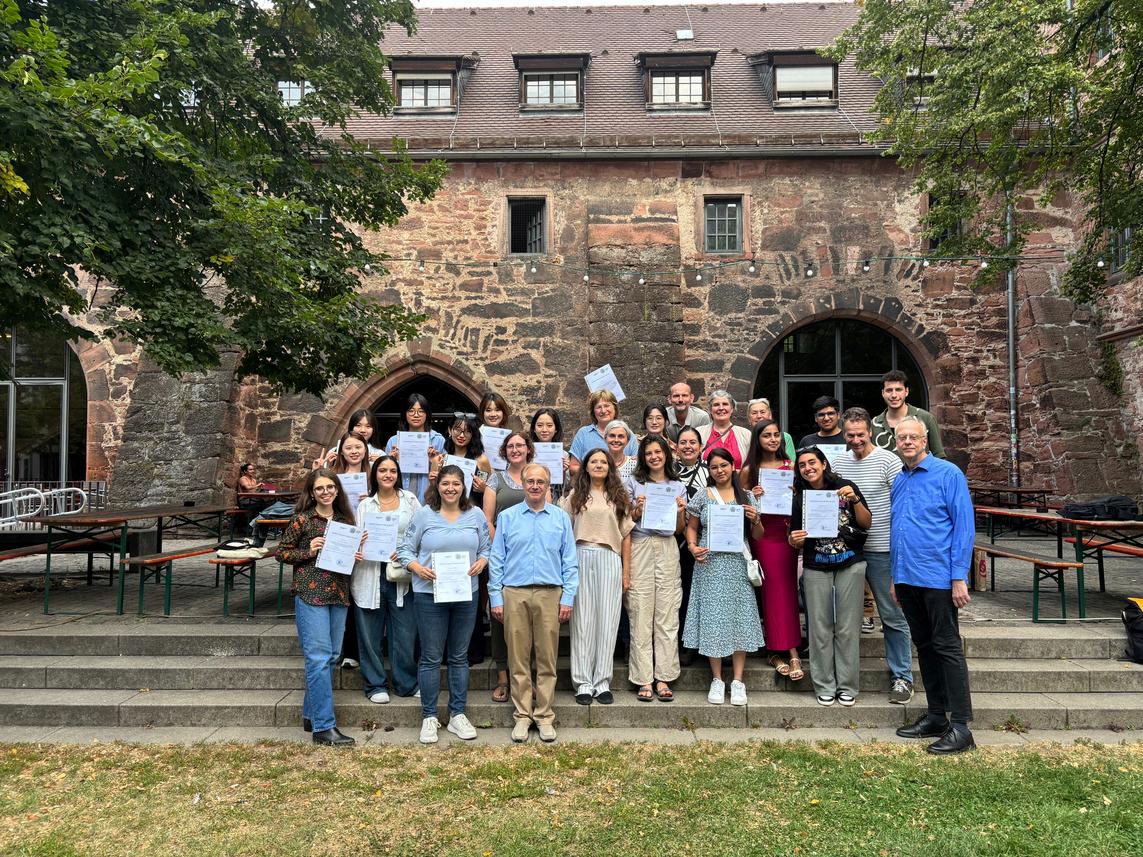
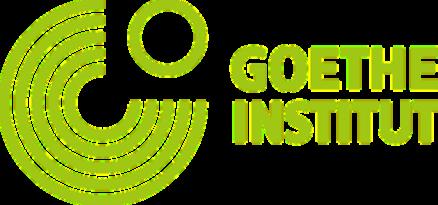
Liebe Kolleg*innen,
das neue Schuljahr steht vor der Tür! In dieser Ausgabe freuen wir uns, Ihnen zwei Hauptartikel präsentieren zu dürfen Erfahren Sie, wie Karla Gotham, eine Lehrerin aus Minnesota, durch die Teilnahme an den Kursen Deutsch Lehren Lernen (DLL) ihre beruflichen Ziele voranbringt, und entdecken Sie die Erlebnisse unserer Sommerakademie-2025-Kohorte in Köln!
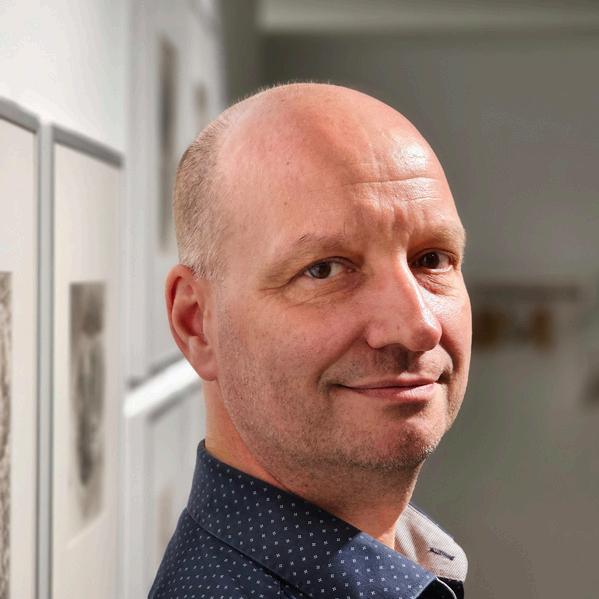
Außerdem möchten wir Sie und Ihre Schüler*innen an die bevorstehenden Fristen für den diesjährigen Aufsatzwettbewerb sowie für Career Booster German(y) erinnern.
Zum Schluss laden wir Sie ein, weitere Angebote zu entdecken: das Sommerprogramm Studienbrücke für Ihre Schüler*innen, unser August-U-Häppchen für den Unterricht sowie die Möglichkeit, kostenlos einen unserer Online-Deutschkurse auszuprobieren.
Auf einen erfolgreichen und inspirierenden Start ins neue Schuljahr!
Im Namen aller Kolleg*innen der BKD USA wünscht Ihnen viel Spaß beim Lesen
Sebastian Vötter
Sebastian Vötter Leitung der Spracharbeit Nordamerika

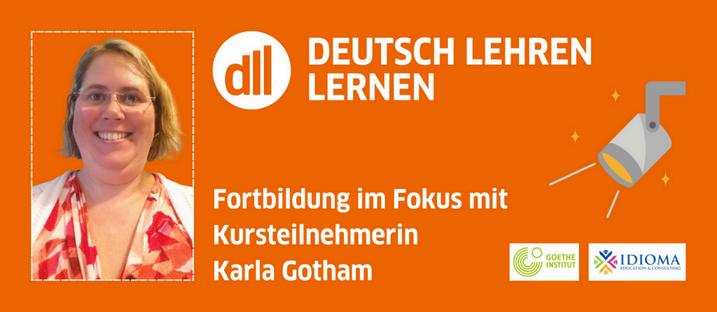
Das Goethe-Institut USA hat die derzeitige Kursteilnehmerin von Deutsch Lehren Lernen (DLL) und Idioma Education & Consulting, Karla Gotham, interviewt, um mehr über ihren beruflichen Werdegang als Deutschlehrerin zu erfahren. Lesen Sie den Artikel und lassen Sie sich inspirieren!
Wo unterrichten Sie Deutsch?
Ich unterrichte Deutsch an der Minnesota Virtual Academy (MNVA), wo ich seit sechs Jahren tätig bin. Derzeit unterrichte ich sowohl Mittel- als auch Oberstufenschüler und habe zusätzlich ein „College in the Schools“ (CIS)Programm in Zusammenarbeit mit der University of Minnesota eingeführt. Durch dieses Programm können Schüler sowohl Highschool- als auch College-Credits für meinen Deutschkurs erhalten. Deutsch bei MNVA ist landesweit für Schüler verfügbar, was besonders wertvoll für diejenigen ist, deren örtliche Schulen die Sprache nicht anbieten.
Aufgrund der jüngsten Budgetkürzungen in Minnesota wurden viele Fremdsprachenprogramme reduziert oder ganz gestrichen – oft ohne Ersatz, wenn Lehrkräfte z.B. die Schule verlassen. In diesem Umfeld ist es wichtiger denn je, ein zugängliches und qualitativ hochwertiges Online-Deutschprogramm anzubieten, und MNVA hilft dabei, diese Lücke für Schüler im ganzen Bundesstaat zu schließen.
Warum haben Sie sich entschieden, einen DLL-Kurs über das Goethe-Institut zu belegen und über Idioma Education & Consulting Leistungspunkte für ein Graduiertenstudium zu erwerben? Wie unterstützt das Ihre beruflichen Ziele?
Ein Vorteil meines Lehrvertrags bei MNVA ist die Möglichkeit, bis zu sechs Graduierten-Credits pro Jahr zu erwerben. Die Kosten übernimmt der Schulbezirk Houston, MN 294. Dank der Partnerschaft zwischen Idioma Education & Consulting und dem Goethe-Institut konnte ich mich für diesen DLL-Kurs anmelden, um
Leistungspunkte für meine berufliche Weiterbildung sowie für ein Zertifikat im Bereich Deutschunterricht zu sammeln.
Obwohl ich vier Masterabschlüsse habe, in Sonderpädagogik, Naturwissenschaftsdidaktik, Chemiedidaktik und Biowissenschaftsdidaktik ist mein Abschluss im Bereich Deutschunterricht auf Bachelor-Niveau. Durch die Teilnahme an DLL-Kursen kann ich meine Qualifikationen im Bereich Deutschunterricht gezielt vertiefen und

Welche Fähigkeiten oder Perspektiven haben Sie durch DLL gewonnen?
Dieser Kurs war für mich unglaublich wertvoll. Als einzige Deutschlehrkraft an meiner Schule in den letzten sechs Jahren musste ich viele Entscheidungen allein treffen: von der Auswahl der Lehrbücher über die Planung des Online-Unterrichts bis hin zur Entwicklung von Lehrplänen. Diese Art von Isolation kann herausfordernd sein und bringt viel Verantwortung mit sich.
DLL 5, mit dem Schwerpunkt auf Curriculum und Medien, bot genau die Aktualisierung, die ich gebraucht habe. Vom Evaluieren von Lehrwerken bis zur Abstimmung der Inhalte auf die Sprachkompetenz der Schüler hat mir der Kurs geholfen, zentrale Aspekte meines Unterrichts zu verfeinern. Im Gegensatz zu anderen Fortbildungen, die sich hauptsächlich auf meine eigene Sprachkompetenz konzentrierten, bot dieser Kurs direkt umsetzbare Strategien und Werkzeuge für den Deutschunterricht.
Besonders bereichernd war die Zusammenarbeit mit Kolleginnen und Kollegen aus aller Welt. Ihre Unterrichtspraktiken zu beobachten, gemeinsam zu reflektieren, was funktioniert und was nicht, und zu erkennen, dass wir ähnliche Herausforderungen teilen –trotz geografischer Distanz– war augenöffnend und inspirierend.
Was würden Sie Kolleginnen und Kollegen sagen, die überlegen, einen DLL-Kurs zu absolvieren? Ich würde sie von ganzem Herzen dazu ermutigen. Das Programm ist anspruchsvoll, aber die Belohnungen sind die Mühe absolut wert. Für Lehrkräfte, die möglicherweise isoliert arbeiten –insbesondere in kleineren Schulbezirken oder virtuellen Umgebungen– bietet DLL praktische Werkzeuge, neue Ideen und eine globale Gemeinschaft von Lehrenden, von der man viel lernen kann.
Die größte Herausforderung für mich war es, das professionelle Vokabular auf Deutsch zu erlernen, um über Unterrichtspraktiken zu sprechen, da alle meine bisherigen Sprachkurse auf Englisch stattfanden. Aber sobald ich diese Sprache beherrschte, eröffnete sich mir eine völlig neue Welt. Ich konnte mich plötzlich intensiver mit internationalen Kolleginnen und Kollegen austauschen, auf mehr Unterrichtsmaterialien zugreifen und mich als Deutschlehrkraft weiterentwickeln. Im Kern geht es bei DLL darum, unseren Unterricht für die Schüler spannender, sinnvoller und effektiver zu gestalten. Und genau dabei hilft es.
Wir gratulieren Karla zu ihrem Engagement für die berufliche Weiterbildung und allen Deutschlehrkräften, die sich in ähnlicher Weise dafür einsetzen, ihren Lernenden einen hochwertigen Unterricht zu bieten.
Erkunden Sie unsere Angebote Fortbildungsreihe: Deutsch Lehren Lernen
Partnerschaft mit Idioma Education & Consulting
Weitere Fortbildungen des Goethe-Instituts USA formalisieren. Als CIS-Lehrkraft bin ich außerdem verpflichtet, mich kontinuierlich in meinem Fachgebiet weiterzubilden, und das DLL-Programm hat sich als hervorragende Möglichkeit erwiesen, diese Anforderungen zu erfüllen und gleichzeitig wertvolle, praxisnahe Expertise zu gewinnen.

Goethe-Institut USA Aufsatzwettbewerb 2025- Einreichungsaufruf!
Highschool Schuler*innen und College-Studierende in den USA sind eingeladen, am diesjährigen Aufsatzwettbewerb teilzunehmen: „Solidarität und Engagement in transatlantischer Perspektive“
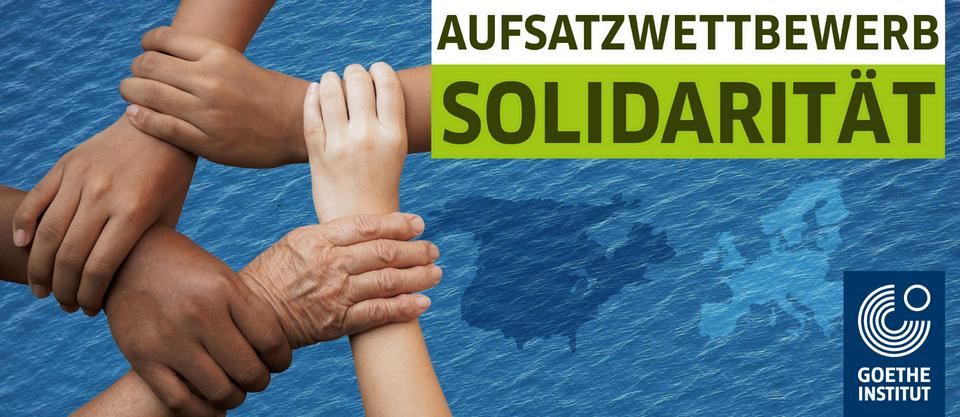
Gewinner*innen erhalten Stipendien für Sprachkurse in Deutschland, Online-DeutschkursStipendien und mehr. Der Einsendeschluss ist der 14. Oktober 2025. Unten klicken für mehr Infos:
Goethe-Institut New York | 17. Oktober 2025 | 7:00-8:30 Uhr EST
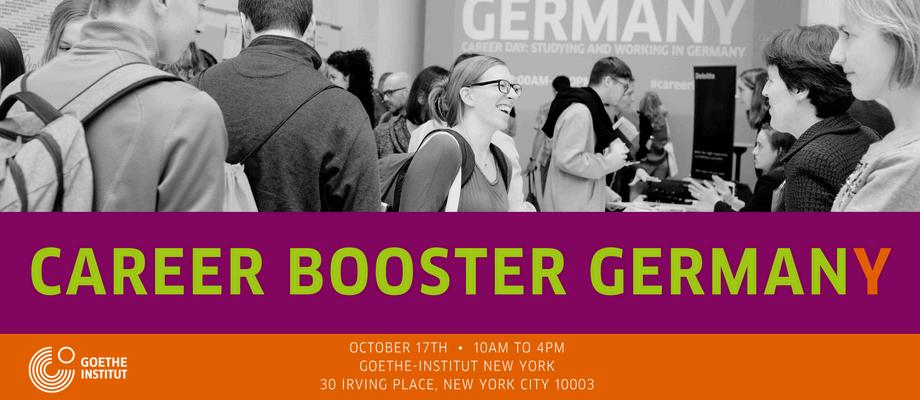
Merken Sie sich den Termin vor! Schüler*innen und Studierende: Entdecken Sie, wie Deutsch Ihnen eine internationale Zukunft eröffnen kann! Besuchen Sie uns persönlich im Goethe-Institut New York und treffen Sie Vertreter*innen deutscher Unternehmen, Hochschulen, Austauschorganisationen und mehr. Diese interaktive Veranstaltung bietet Ihnen direkten Zugang zu Menschen, die Ihnen beim nächsten Schritt helfen können.

Zwei intensive Wochen voller Lernen, Erlebnisse und neuer Freundschaften gingen am 8. Juni 2025 zu Ende. Junge angehende Lehrkräfte und Quereinsteiger*innen hatten die Gelegenheit, ihr Wissen zu erweitern, wertvolle Erfahrungen zu sammeln und die Schönheit der Region zu entdecken. Die Sommerakademie für US-amerikanische Lehramtsstudierende erwies sich als voller Erfolg. Das Projekt wird durch das Transatlantik-Programm der Bundesrepublik Deutschland aus Mitteln des European Recovery Program (ERP) des Bundesministeriums für Wirtschaft und Klimaschutz (BMWK) gefördert.
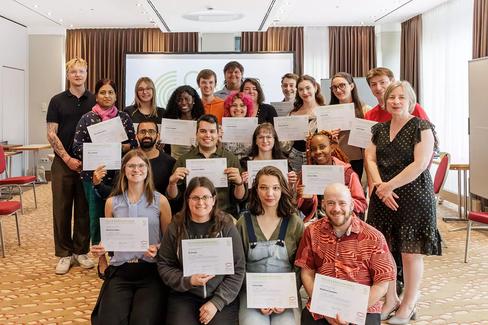
Gruppenfoto der Sommerakademie 2025 mit Teilnahmezertifikaten.
Bei einem einführenden Stadtrundgang erlebte die Gruppe Kölner Witz und Humor und lernte auf unterhaltsame Weise die Geschichte dieser bedeutenden Stadt kennen. Ein Besuch des NSDokumentationszentrums machte die anhaltende Bedeutung und die Nachwirkungen des Nationalsozialismus erfahrbar. Ein Workshop am DOMiD (Dokumentationszentrum und Museum über die Migration in Deutschland) führte in die Migrationsgeschichte Deutschlands nach 1945 ein.
Der Besuch dieses Archivs, des ersten dieser Art, machte deutlich, wie wichtig die kontinuierliche Beschäftigung mit der Erinnerungskultur in Deutschland ist, um ein zeitgenössisches Deutschlandbild im Deutschunterricht zu präsentieren. Aufgrund dieser intensiven Programmpunkte hatten die Teilnehmer*innen so die Möglichkeit, deutsche Geschichte vor Ort und in der Stadt zu erleben und authentische Unterrichtsmaterialien zu sammeln um sich mit der Kulturgeschichte und dem aktuellen Köln auseinanderzusetzen.
Besuch bei der Universität Köln und am Lessing-Gymnasium
Zu den Höhepunkten der Sommerakademie gehörte der Besuch der Universität Köln. Die Studierenden nahmen an gemeinsamen und speziell für sie konzipierten Workshops und Vorträgen teil, die von renommierten Dozentinnen des Zentrums für Lehrer*innenbildung geleitet wurden. Dabei konnten sie nicht nur theoretisches Wissen vertiefen, sondern auch moderne Lehrmethoden und innovative Ansätze für den Unterricht kennenlernen und sich mit Studierenden der Universität Köln austauschen.
Ein weiterer wichtiger Bestandteil des Programms war der Besuch des bilingualen Lessing-Gymnasiums in Köln. Hier konnten die Lehramtsstudierenden praxisnahen Unterricht erleben und hospitieren. Die engagierten Lehrkräfte des Gymnasiums gaben wertvolle Einblicke in den Schulalltag und teilten ihre langjährigen Erfahrungen. Besonders beeindruckend war die Möglichkeit, selbst kleine Unterrichtseinheiten zu gestalten und durchzuführen, was von den Schülerinnen und Schülern mit großer Begeisterung aufgenommen wurde.

Kulturlandschaft Siebengebirge
Ein besonderes Highlight war der Ausflug in das Siebengebirge. Die beeindruckende Landschaft bot nicht nur einen willkommenen Ausgleich zu den intensiven Lernphasen, sondern auch die Gelegenheit, Naturerlebnisse pädagogisch zu reflektieren. Bei Wanderungen und Teamaktivitäten konnten die Teilnehmer*innen ihre Teamfähigkeit und Kommunikationskompetenz stärken – Fähigkeiten, die im späteren Lehrerberuf von großer Bedeutung sind.
Ein methodisch-didaktischer Workshop am GoetheInstitut Bonn rundete die Sommerakademie ab, an dessen Ende die Teilnehmenden ihre Erfahrungen und neu gewonnenen Erkenntnisse präsentierten. „Die Sommerakademie hat uns nicht nur fachlich weitergebracht, sondern auch persönlich bereichert“, so eine Teilnehmerin. „Die Begegnungen und Erlebnisse werden uns noch lange in Erinnerung bleiben.“
Das Leitungsteam der Sommerakademie, Dr. Susanne Rinner und Michael Thompson zeigten sich ebenfalls sehr zufrieden mit dem Verlauf der Sommerakademie und betonten die Bedeutung
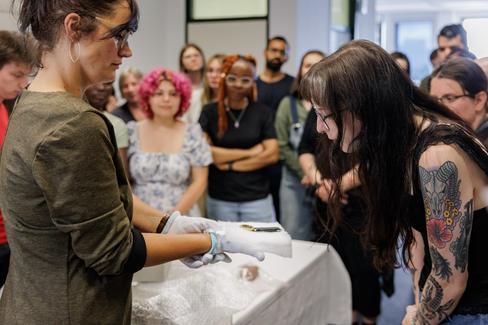
Eine wissenschaftliche Mitarbeiterin des DOMiD zeigt den Teilnehmer*innen der Sommerakademie ein Archivobjekt
solcher Initiativen für die Lehramtsausbildung. „Die Förderung von jungen Lehramtsstudierenden ist eine Investition in die Zukunft des amerikanischen Bildungssystems“, erklärten sie. „Wir freuen uns, mit der Sommerakademie einen Beitrag zur Stärkung des Deutschunterrichts in den USA und des transatlantischen Dialogs zwischen den USA und Deutschland leisten zu können.“
Mit vielen neuen Eindrücken und gestärktem Engagement kehren die jungen Lehramtsstudierenden nun an ihre Heimatuniversitäten zurück, bereit, die gesammelten Erfahrungen in ihre zukünftige Lehrtätigkeit einfließen zu lassen. Die Sommerakademie in Köln hat gezeigt, wie wichtig und bereichernd praxisorientierte und interdisziplinäre Lernformate für die Ausbildung der nächsten Lehrer*innengeneration und des Fachkräfteaustauschs sind.
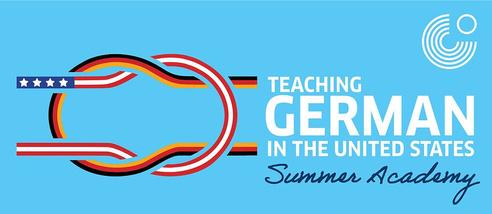
Interessiert an weiteren Informationen zur Sommerakademie?
Klicken Sie hier, um mehr zu erfahren!
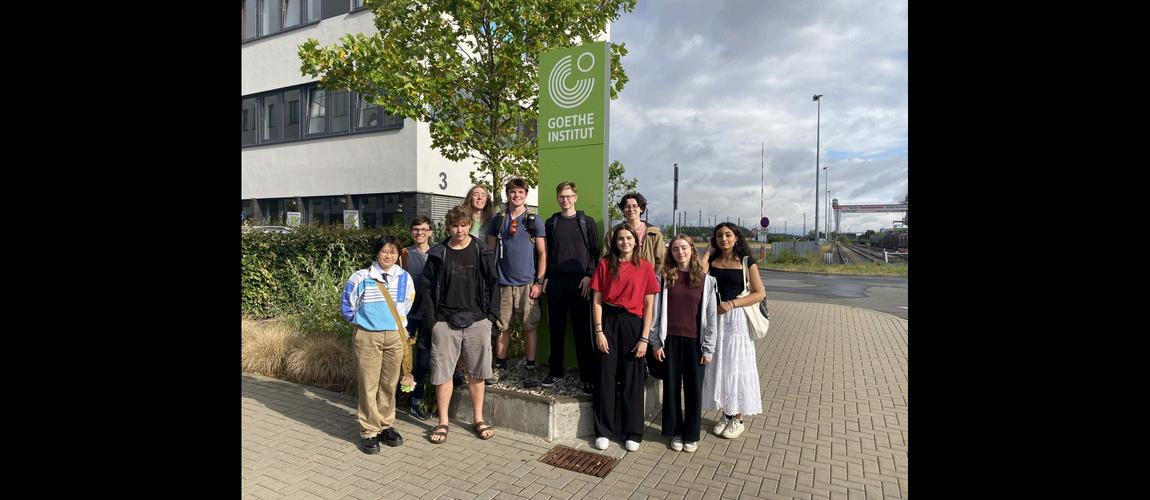

Mit der Studienbrücke in Deutschland studieren
Ein Bachelorstudium in Deutschland ist eine hervorragende Möglichkeit für Ihre Schüler*innen, ihre Deutschkenntnisse weiter anzuwenden und sich gleichzeitig auf eine berufliche Laufbahn vorzubereiten Das Studienbrücke-Programm bereitet die Schüler auf einen erfolgreichen Übergang ins deutsche Universitätssystem vor und bietet einen klaren Weg sowie gezielte Unterstützung beim Spracherwerb, der Prüfungsvorbereitung, der fachlichen Vorbereitung und dem Bewerbungsprozess selbst. Hier klicken!
Neues U-Häppchen für Ihren Deutschunterricht
U-Häppchen sind interaktive PDFs, die als Grundlage für einen kulturell bedeutsamen und kompetenzorientierten Sprachunterricht dienen können. Wir schlagen vor, diese Materialien als Anreicherung im fremdsprachlichen Unterricht Deutsch zum Einsatz kommen zu lassen.
Unser U-Häppchen für August zum Thema Eisdielen kann als Anregung für die erste Schulwoche dienen! Alle U-Häppchen finden Sie auf der Deutschstunde zum kostenlosen Download!
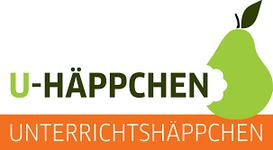
Entdecke Deutsch mit kostenlosen Probestunden

Unser nächster Kursplan startet im September mit einem vielfältigen Lernprogramm für Erwachsene, Jugendliche und Kinder Wenn Sie schon länger mit uns lernen, können Sie direkt weitermachen. Und wenn Sie neu dabei sind –warum nicht eine unserer kostenlosen Probestunden besuchen? So können Sie unsere verschiedenen OnlineFormate ganz unverbindlich kennenlernen, bevor Sie sich anmelden und festlegen.
Wussten Sie schon, dass wir Deutschlehrende mit einem $100 Gutschein unterstützen? Sichern Sie sich noch heute einen Gutschein im Wert von 100 $ für ein Online-Angebot des Goethe-Institut USA!

Founded by language teachers, for language teachers
A t X p e r i t a s , w e u n d e r s t a n d n o t w o c l a s s ro o m s - o r
t
h a n d w i t h G e r m a n e d u c a t o r s t o c re
p
e x p e r i e n c e s t a i l o re d t
a n d s t u d e n t n e e d s . O u r l a t e s t i t i n e r a r i e s f e a t u re
t w o i n n o v a t i v e p ro g r a m s t h a t f o c u s o n i m m e r s i v e
l a n g u a g e l e a r n i n g a n d c u l t u r a l e x p l o r a t i o n
d e s i g n e d t o i n s p i re a n d e n g a g e y o u r s t u d e n t s l i k e
n e v e r b e f o re . A d d i t i o n a l l y , w e o ff e r f u l l y c u s t o m
p ro g r a m s t o f i t y o u r s p e c i f i c v i s i o n a n d o b j e c t i v e s .
D i s c o v e r f l e x i b l e , p u r p o s e f u l , a n d i n t e r a c t i v e
l e a r n i n g m o m e n t s t h a t m a k e a re a l i m p a c t
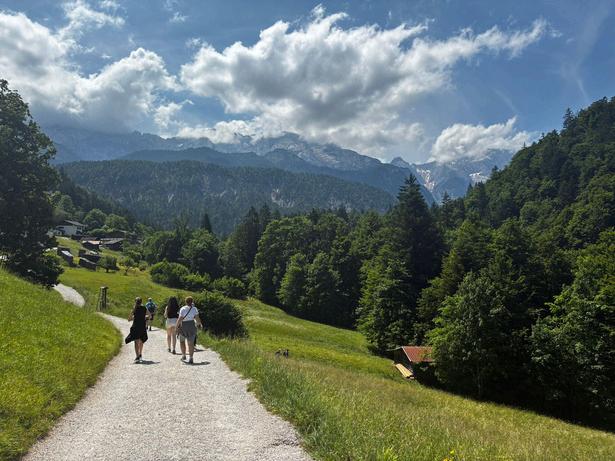
f o r a n e n h a n c e d c u l t u r a l a n d l a n g u a g e
i m m e r s i o n e x p e r i e n c e
Create a travel experience as unique as your students. We’ll help you make it meaningful, safe, and seamless.
b e n t e u e r i n d e n A l p e n D e u t s c h l a n d i n v o l l e n Z ü g e n g e n i e ß e n E x p l o re o u r l i s t o f h a n d s - o n a c t i v i t i e s

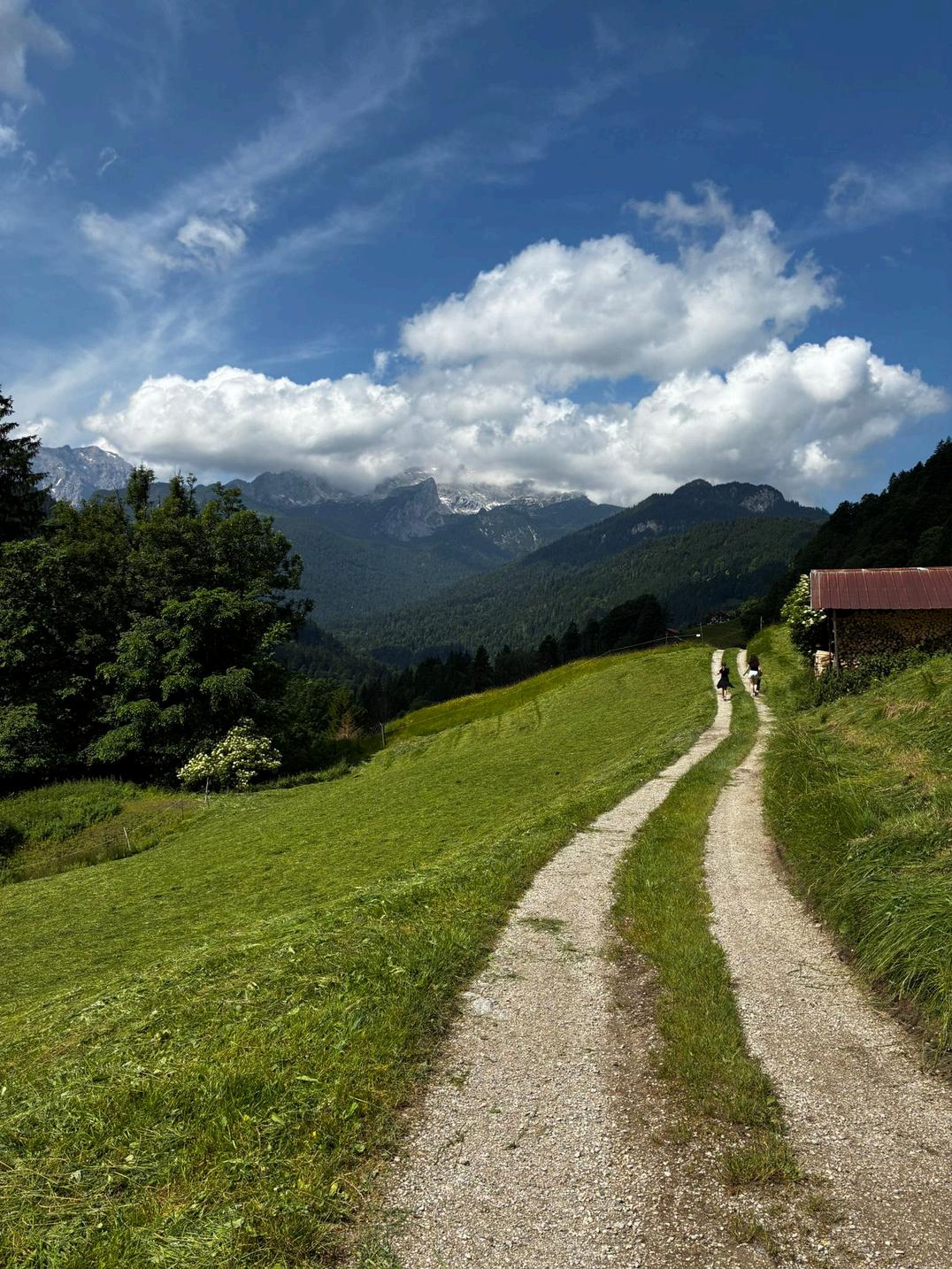
E x p l o r e G e r m a n y a n d A u s t r i a :
M o u n t a i n M a j e s t y i n 9 D a y s
R o t h e n b u r g o . d . Ta u b e r •
M u n i c h • N e u s c h w a n s t e i n •
Z u g s p i t z e • G a r m i s c h -
P a r t e n k i r c h e n • S a l z b u r g
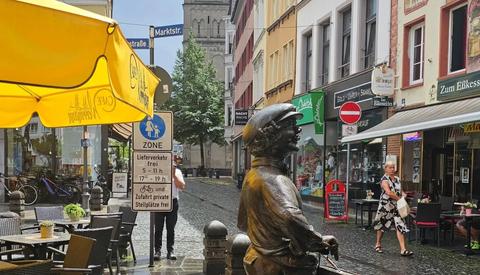
E x p e r i e n c e t h e B e s t o f
G e r m a n y : C u l t u r e , H i s t o r y , a n d S c e n i c B e a u t y
K o b l e n z • R h i n e R i v e r •
C o l o g n e • H e i d e l b e r g •
M u n i c h • N e u s c h w a n s t e i n •
Z u g s p i t z e • G a r m i s c h -
P a r t e n k i r c h e n • S a l z b u r g

DISCOVER OUR LATEST GERMAN PROGRAMS DISCOVER OUR
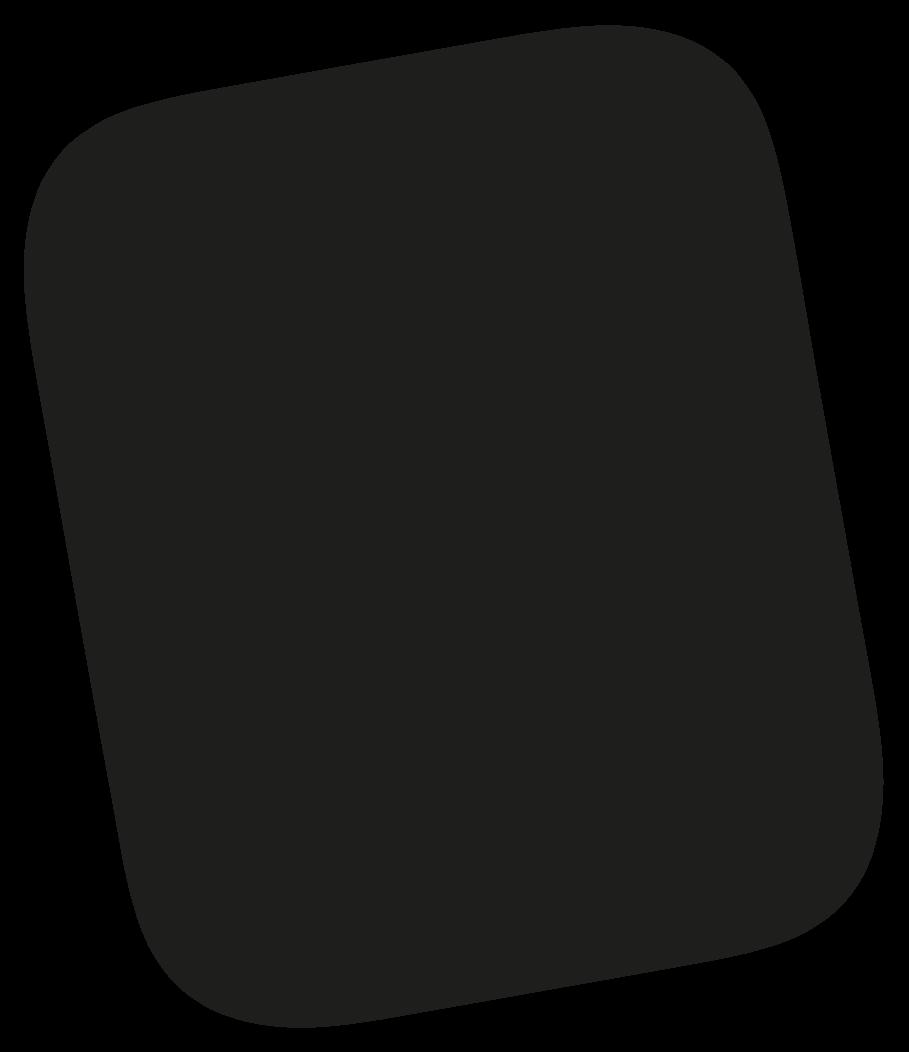
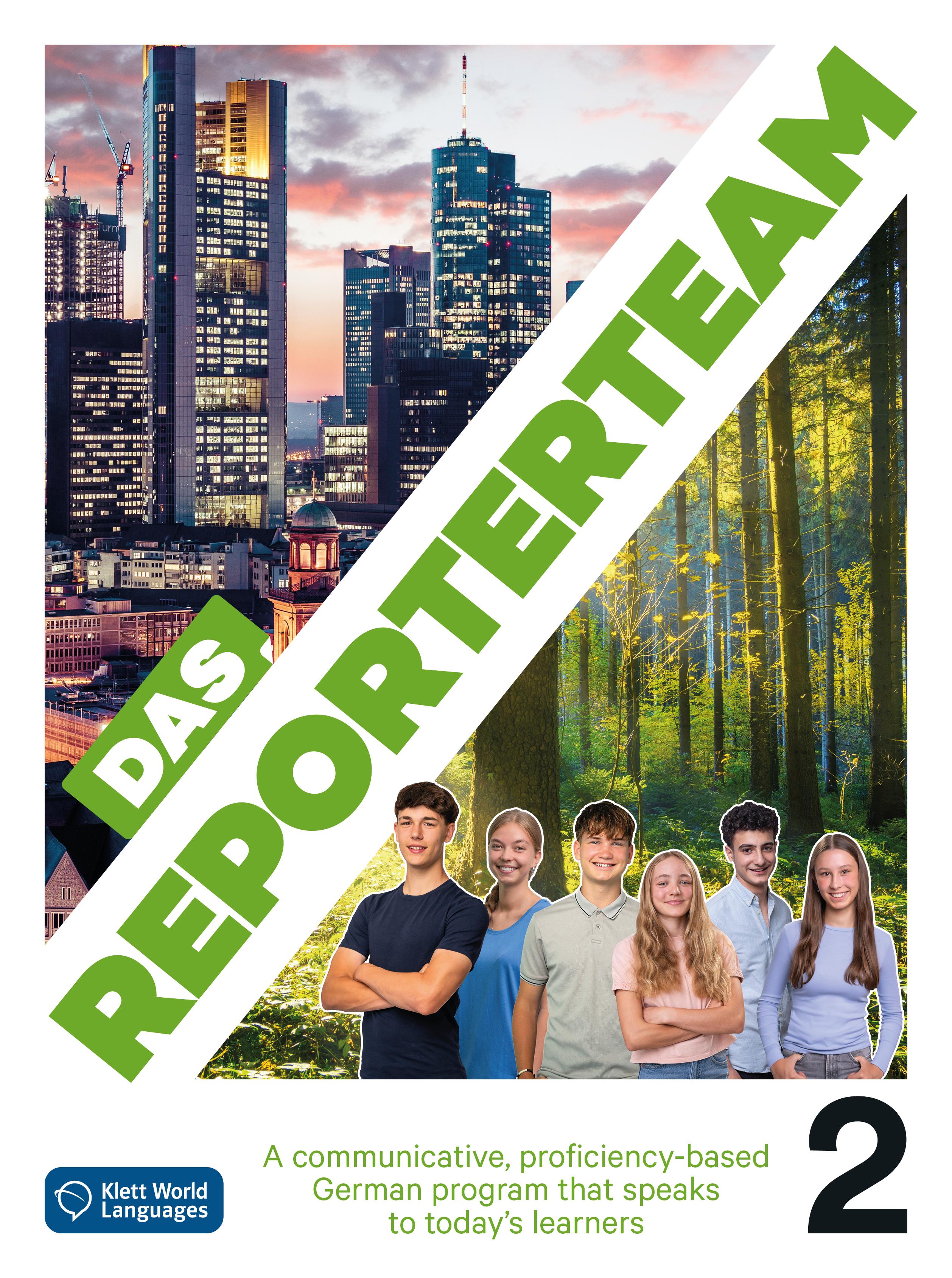
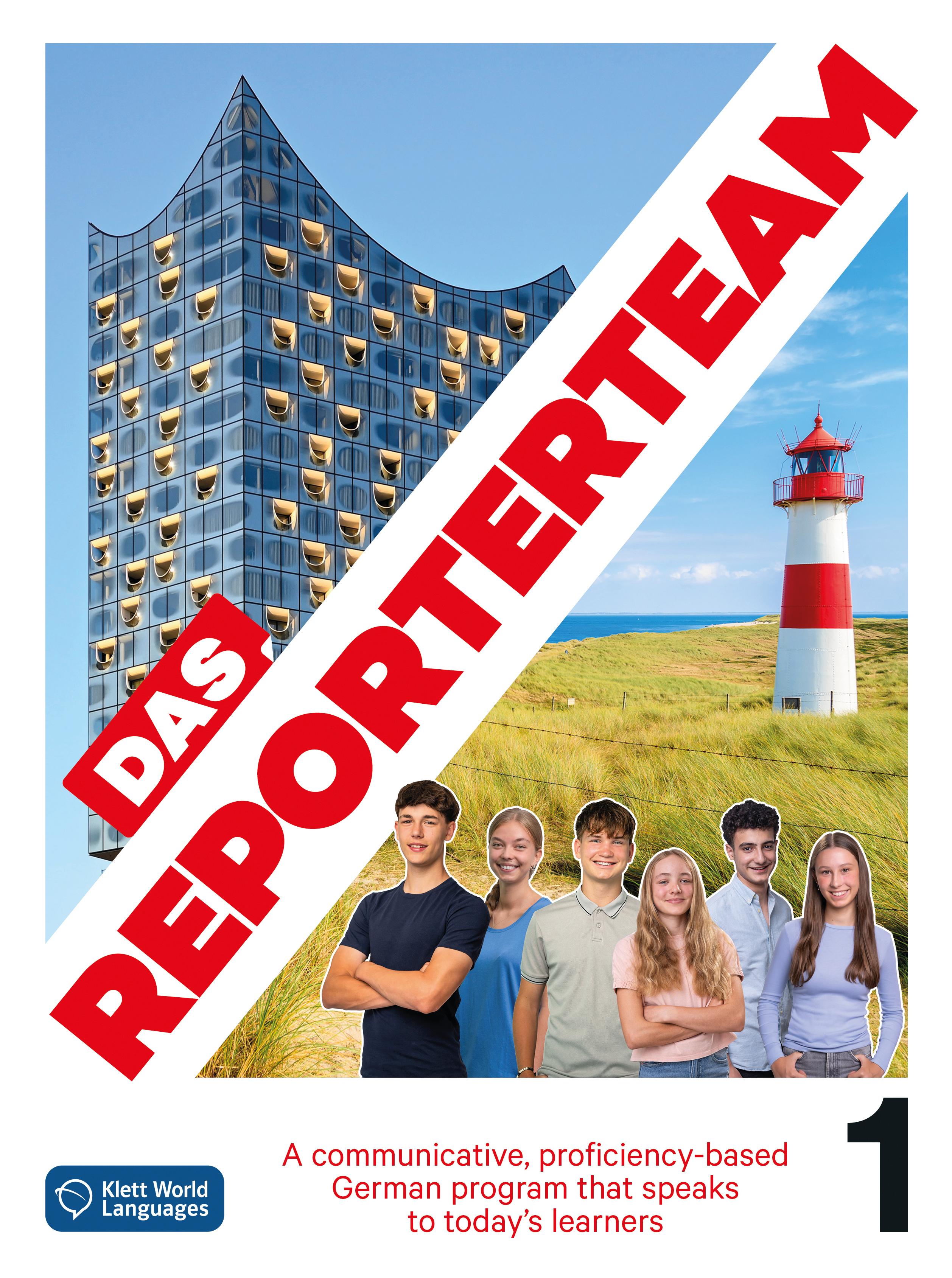
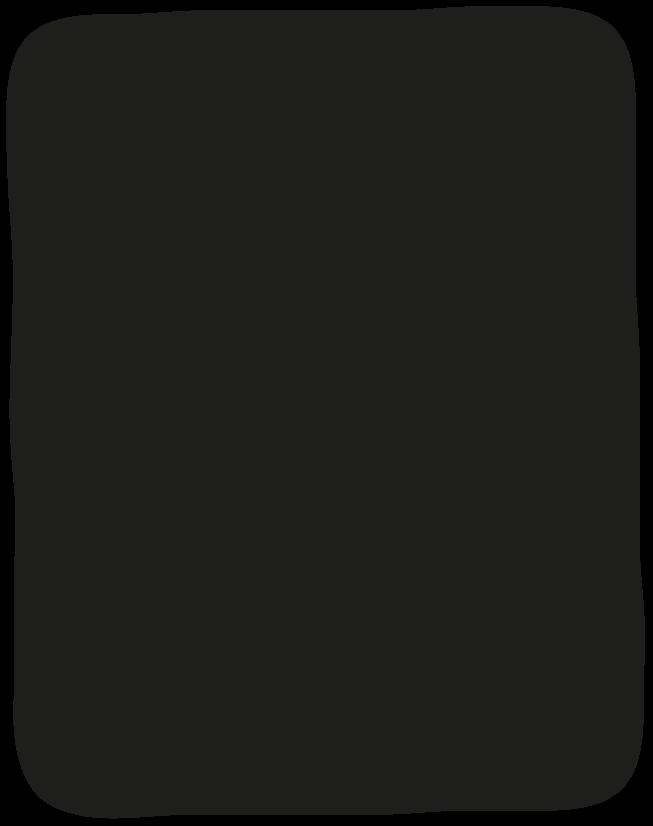
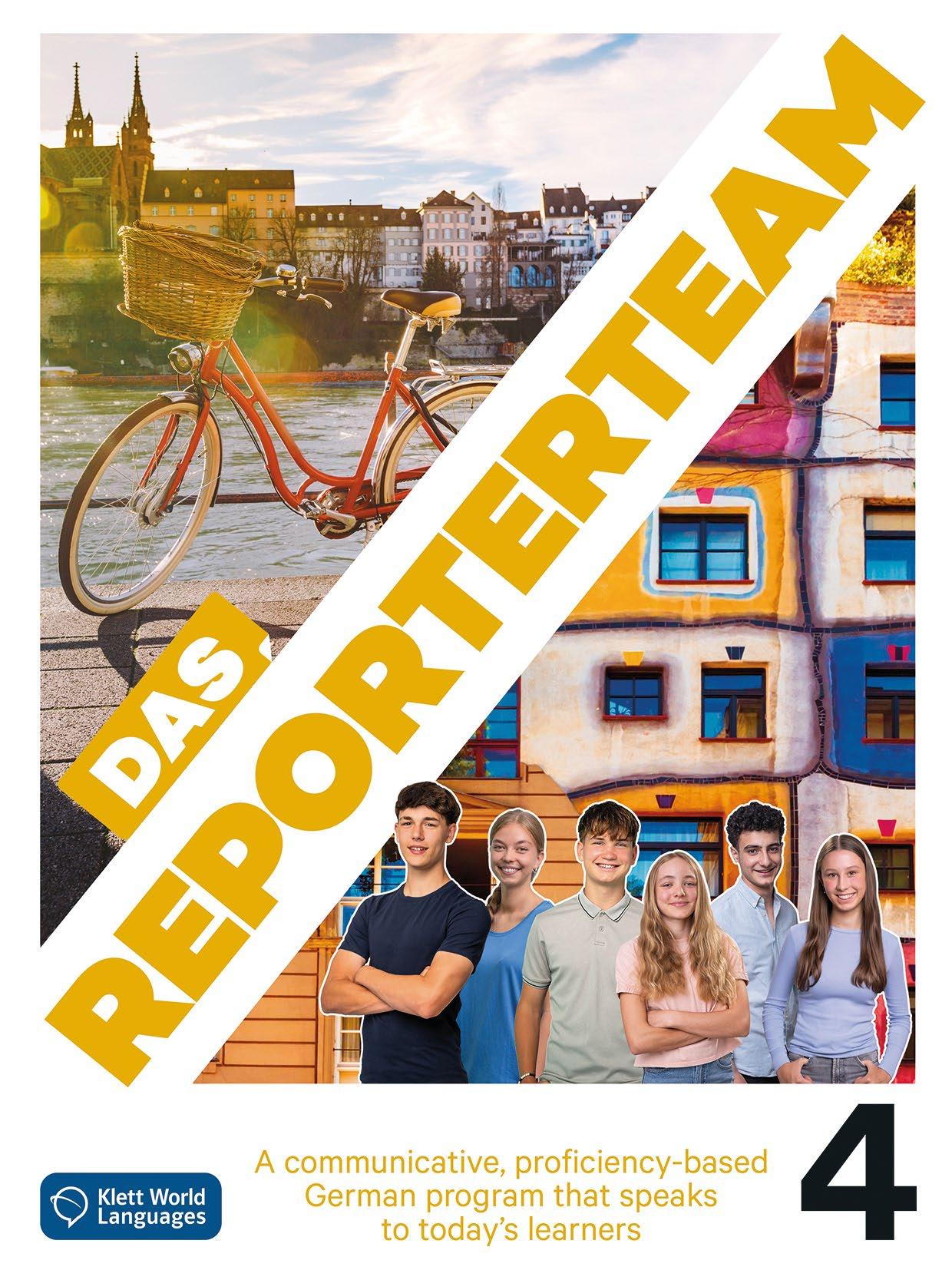
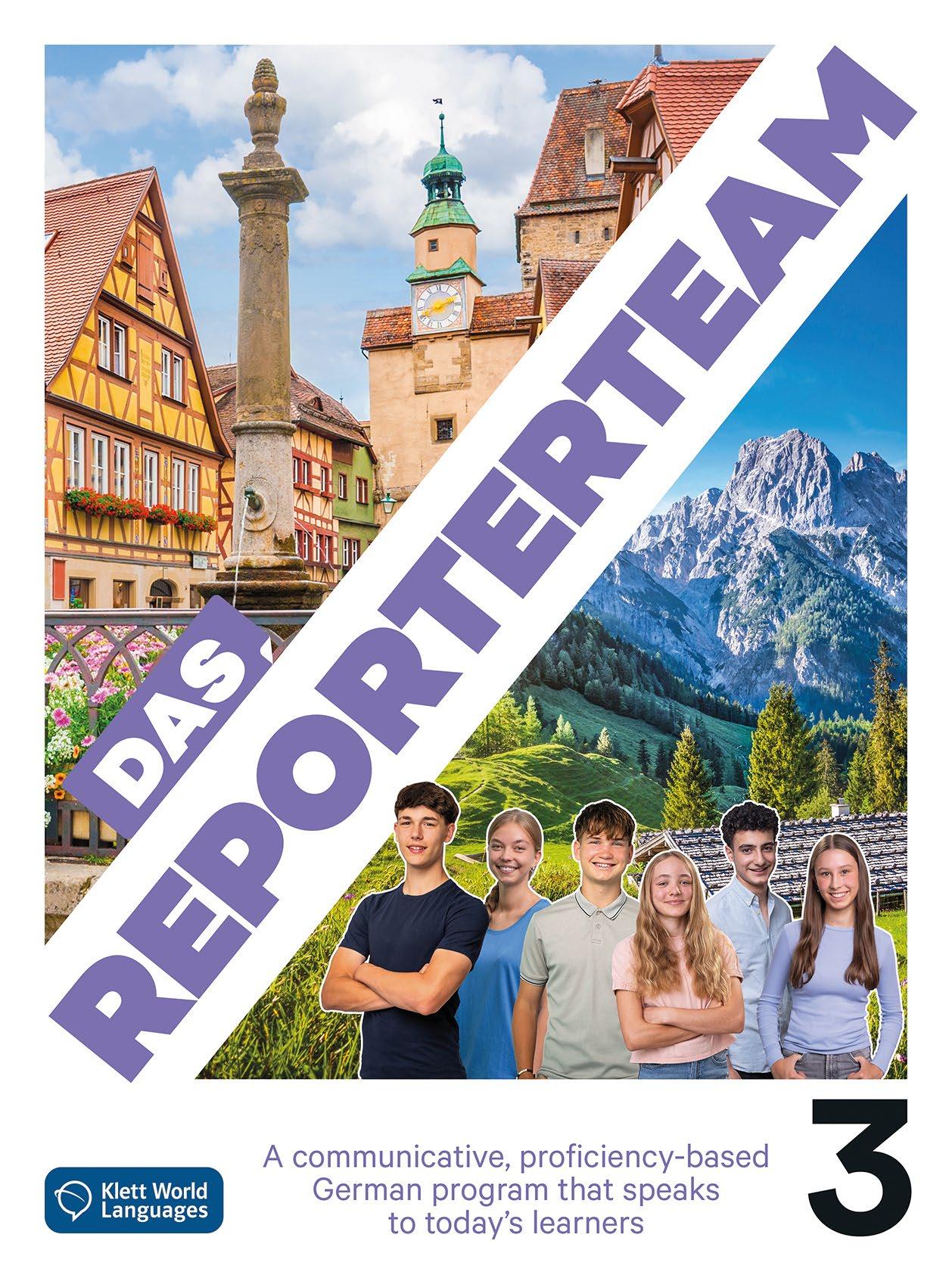

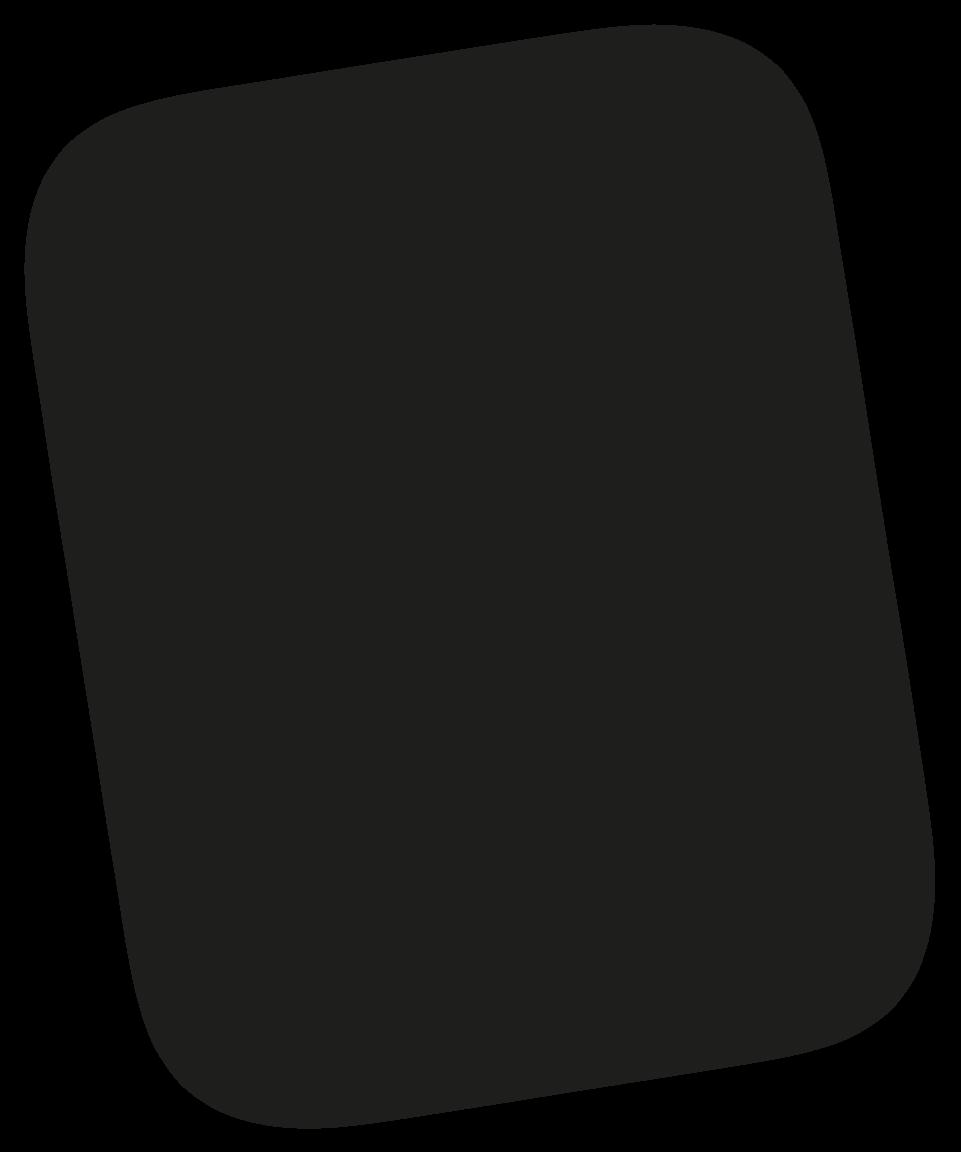

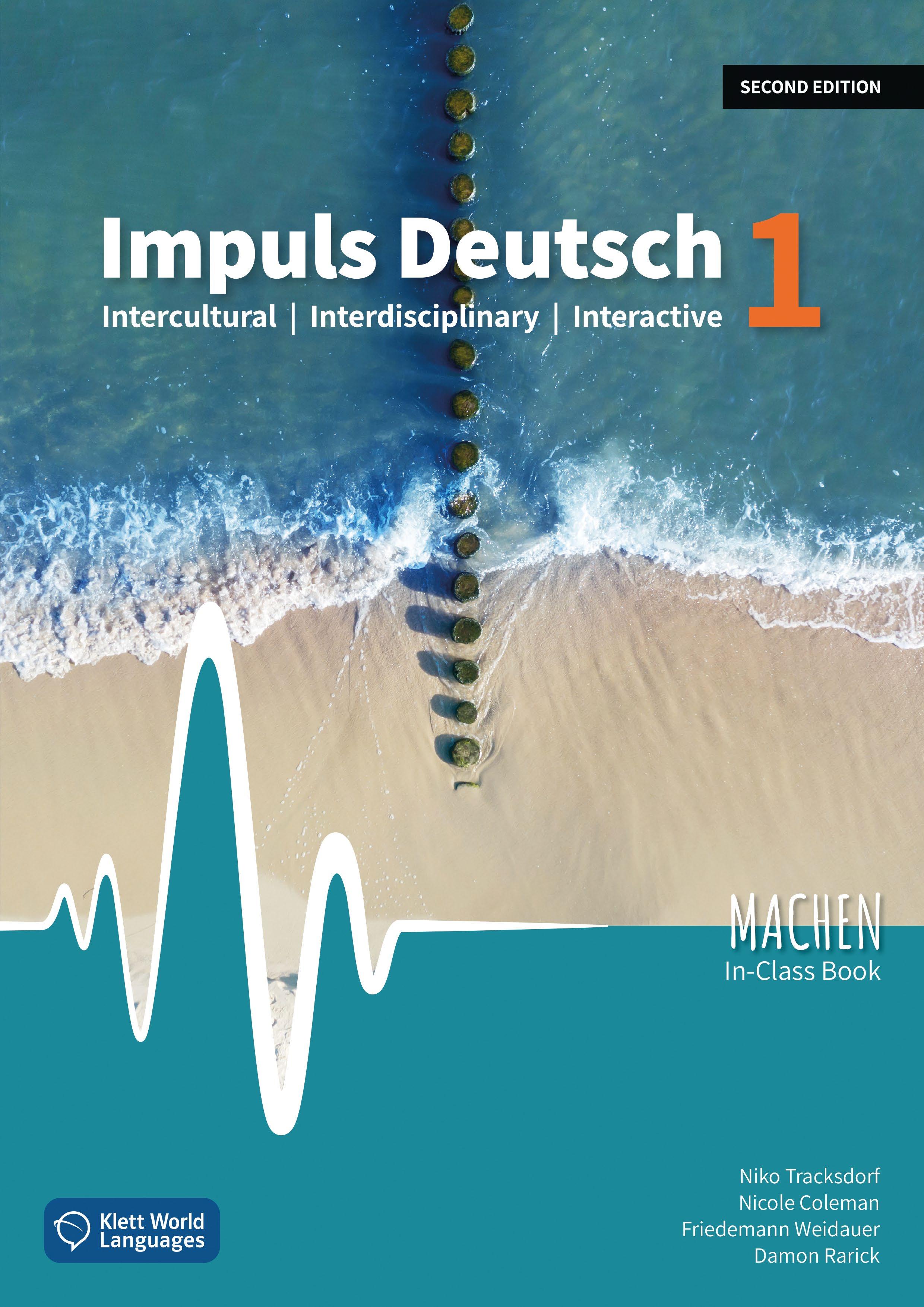

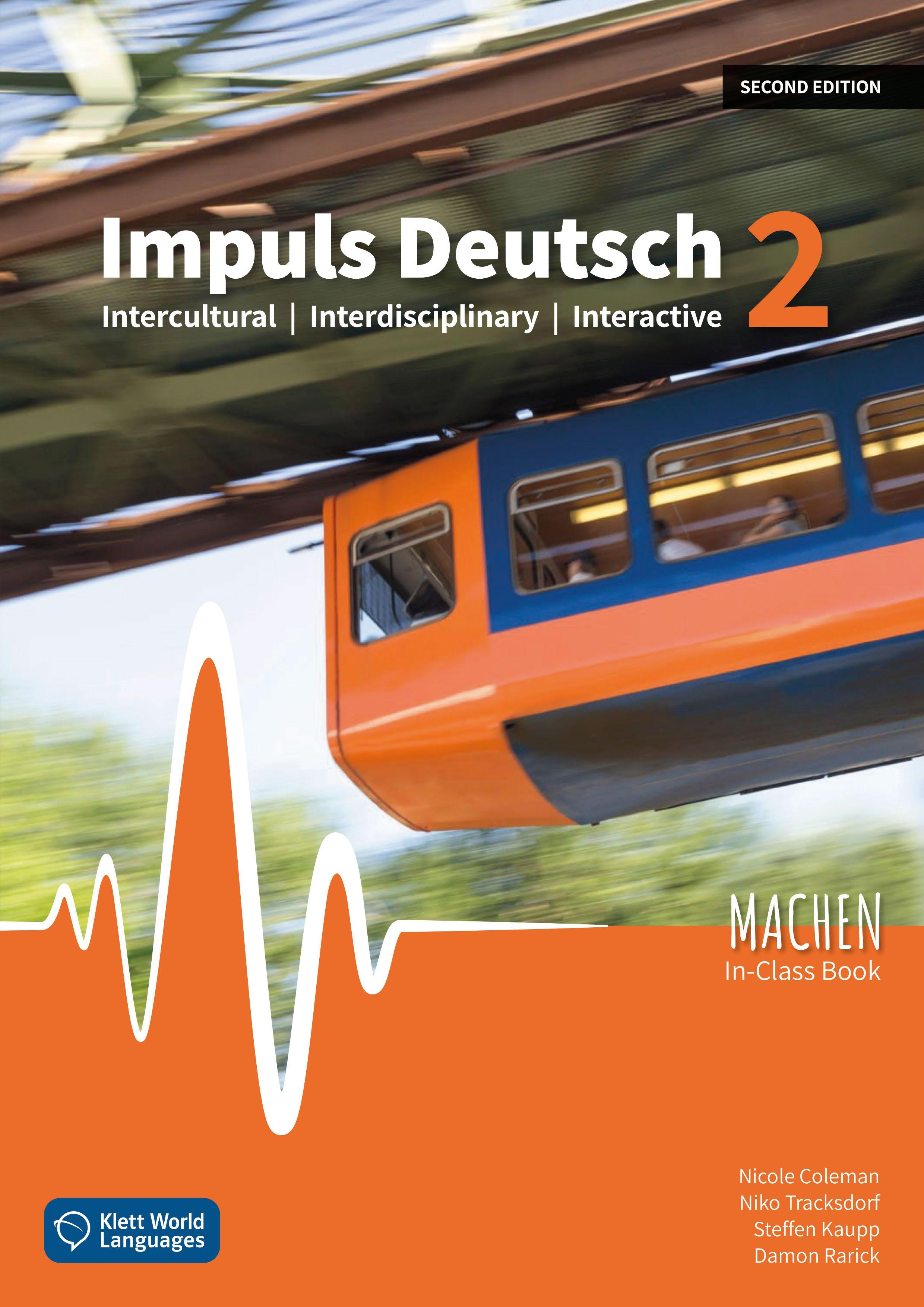

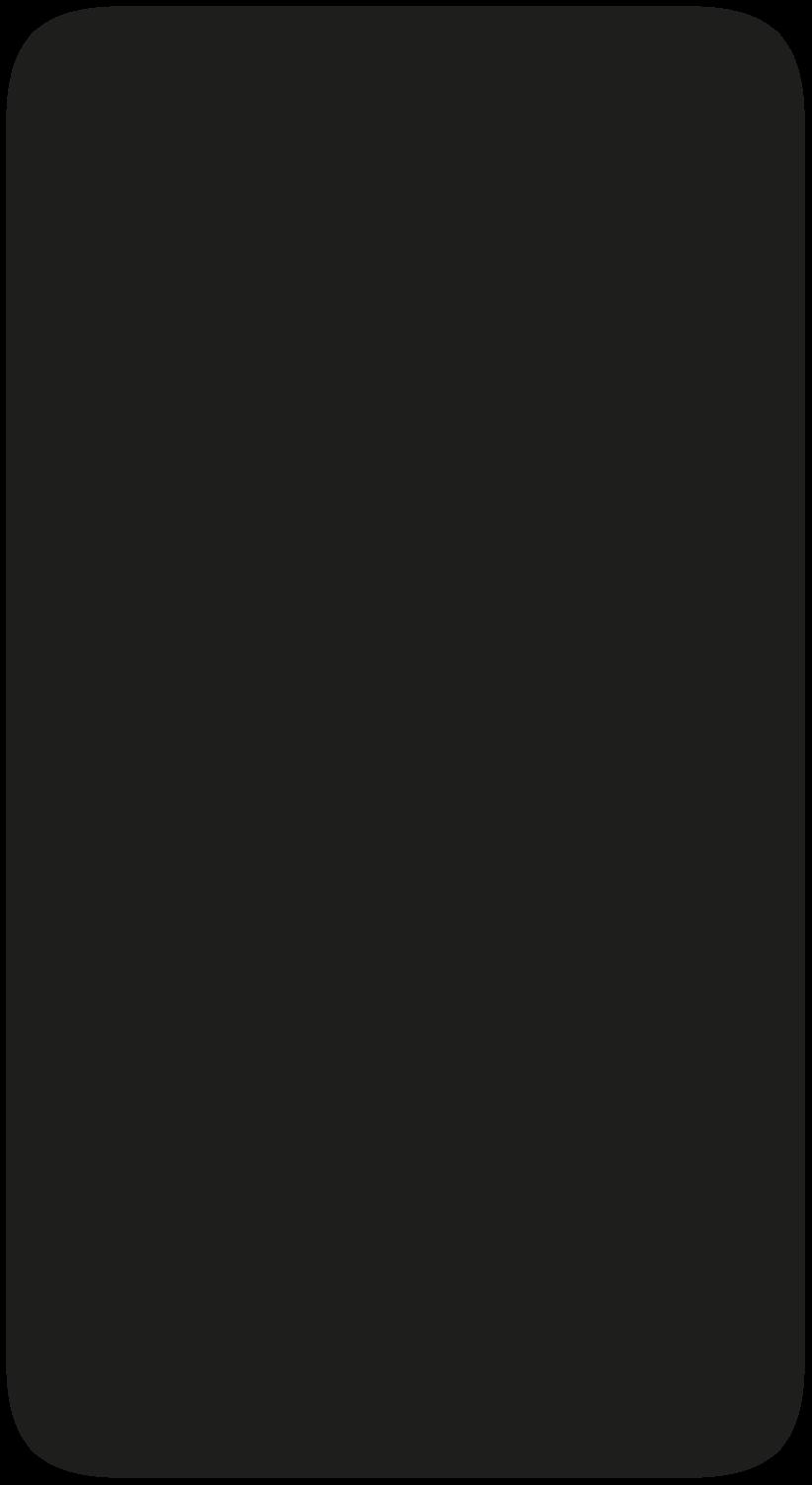
PROFESSIONAL PARTNER
GOLD für Lehrkräfte von DSD -Schulen aus den USA und Kanada
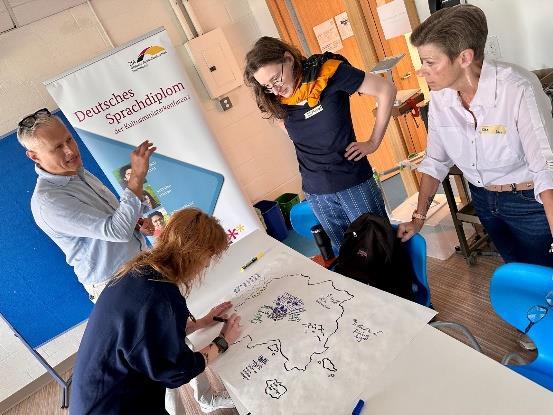
Foto: Fabrice Liesegang
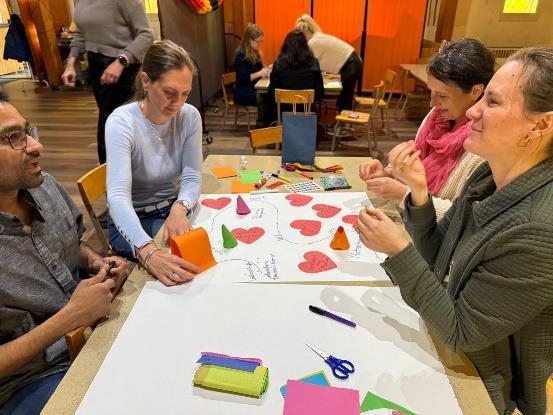
Foto: Gabi Maiß-Minkler
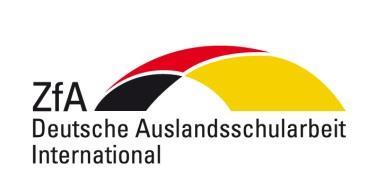
Alle streben nach GOLD! Zumindest in den DSD-GOLD-Kursen, die die Fachberatungen Deutsch jedes Schuljahr als Blended-Learning-Fortbildungen für DaF-Lehrkräfte im DSD-Programm anbieten GOLD ist ein Akronym und steht für Globales Online Learning DaF. Es gibt drei DSD-GOLD-Kurse:
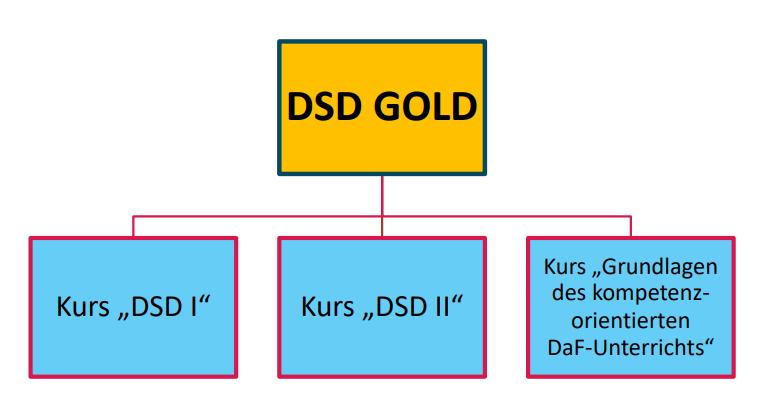
Im Schuljahr 2024/25 boten wir Fachberatungen der USA und Kanada für Lehrkräfte von DSD -Schulen den Kurs „Grundlagen des kompetenzorientierten DaF-Unterrichts“ an. Über sieben Monate hinweg erarbeiteten sich die Lehrkräfte fundierte Kenntnisse zu den Prüfungsformaten des DSD, vertieften ihre methodisch-didaktischen Kompetenzen und erfuhren praktische Unterstützung bei der Umsetzung eines kompetenzorientierten Deutschunterrichts. Die Lerninhalte lagen den Kursteilnehmenden auf einer Moodle -Lernplattform in unterschiedlicher Form (Lesedokumente, Hör- und Videodateien) bereit. Die Inhalte eigneten sich die Teilnehmenden an, indem sie unterschiedliche Übung, Aufgaben und Tests dazu bearbeiteten. Sie arbeiteten dabei zumeist im Selbststudium, ta uschten sich aber in wiederkehrenden kooperativen Aufgaben mit den anderen Deutschlehrkräften und den als Tutorinnen und Tutoren fungierenden Fachberatungen aus.
Den Abschluss bildete ein Präsenzseminar an einem Wochenende im Mai. Hier beschäftigten wir uns nochmal genauer mit dem kompetenzorientierten DaF-Unterricht, der binnendifferenzierend schülerzentriert ist und die Lebenswelt der Schülerinnen und Schüler berücksichtigt. Um diesen Ansprüchen gerecht zu werden, erstellten die Teilnehmenden Skizzen
von konkretem Unterricht, in dem Schülerinnen und Schüler Lerninhalte durch kooperative Lernformen kommunikationsfördernd erarbeiten Während die eine Hälfte der Lehrkräfte am Präsenzseminar an der Seattle Area German-American School teilnahm, traf sich die andere Hälfte an der German International School New York. Wie immer bei Präsenzveranstaltungen, profitierten die Teilnehmenden nicht nur vom inhaltlichen Input und dem fachlichen Austausch, sondern kamen über viele Themen, die sie im Unterrichtsalltag besc häftigen, ins Gespräch, merkten dabei, dass sie nicht alleine sind und vernetzten sich, um sich auch zukünftig austauschen zu können.
Rund dreißig Lehrkräfte erhielten nach Abschluss des Kurses ein Zertifikat, das ihnen die erfolgreiche Teilnahme an ca. 40 Stunden online-Studium und dem Präsenzseminar bescheinigte, und sicherten sich so GOLD!
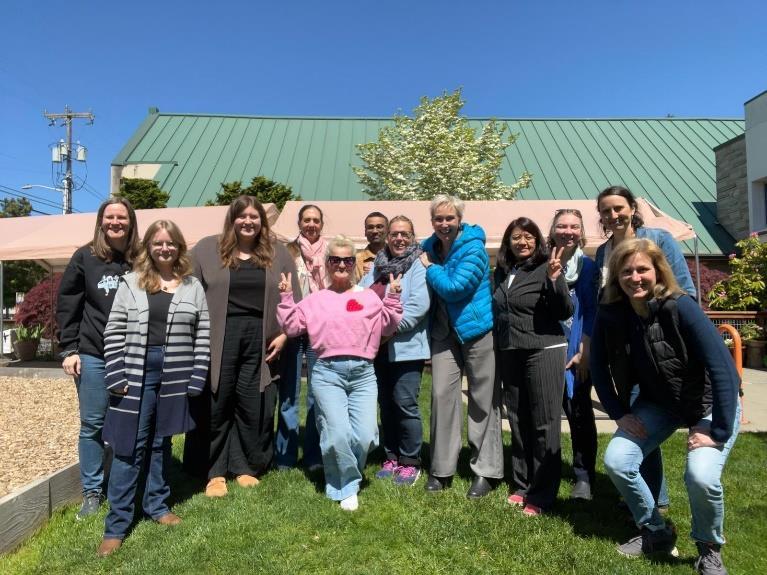
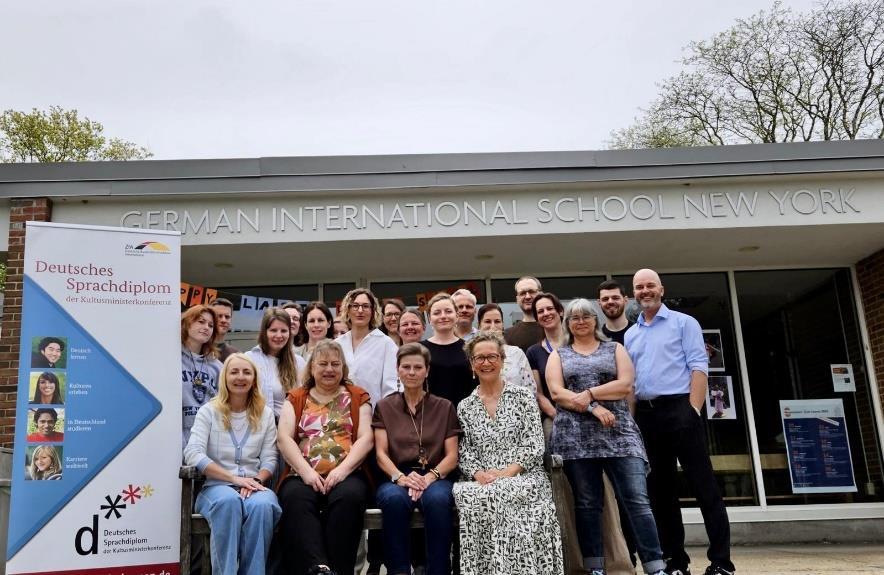
Bericht: Anna Busch, newyork@auslandsschulwesen.de
Unterrichten mit Köpfchen – jetzt wird’s konkret!
Nach dem erfolgreichen Auftakt im Frühjahr geht es jetzt mit neuen, praxisnahen Workshops weiter. Ziel ist es, Ihnen sofort einsetzbare Ideen und erprobte Unterrichtsansätze an die Hand zu geben – egal, an welcher Schulform oder mit welchen technischen Möglichkeiten Sie unterrichten.
Alle Workshops werden von der Zentralstelle für das Auslandsschulwesen (ZfA) organisiert und zusammen mit unserem Partner Forum Deutsch angeboten. Eingeladen sind alle Deutschlehrkräfte, unabhängig von Schulform oder Erfahrung. Die Teilnahme ist kostenfrei. Teilnehmerinnen und Teilnehmer erhalten im Nachgang eine Teilnahmebescheinigung.
Einige der kommenden Workshop-Highlights im Überblick:
Persönliche KI Schreibtutoren mit individuellem Feedback im DaF Unterricht
21. Oktober 2025 | 19:00 Uhr EDT
In diesem Workshop lernen Sie, wie Sie KI lernförderlich im DaF Unterricht einsetzen können – von der gezielten Aufgabenerstellung über passgenaue Feedback-Kriterien bis zur übersichtlichen Klassenauswertung. Das Praxisbeispiel FelloFish (in der Pro-Version kostenpflichtig) zeigt, wie Schülerinnen und Schüler während des Schreibprozesses direkt Rückmeldungen e rhalten, ihre Texte überarbeiten und so Schritt für Schritt bessere Ergebnisse erzielen.
Silent Books – Sprechende Bilder im DaF-Unterricht
04. November 2025 | 17:30 Uhr EST
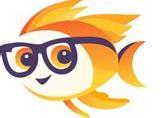
Bücher, die ohne Worte ganze Geschichten erzählen – Silent Book bieten besonders im DaF-Unterricht wertvolle Zugänge für Lernende aller Sprachniveaus. Sie regen zu Gesprächen und kreativem Arbeiten an, bieten vielfältige Schreibanlässe und schaffen Brücken zu kulturellem Austausch.
Poetry Slam im DaF Unterricht – Sprache trifft Bühne
10.Dezember 2026 | 19:00 Uhr EST
In diesem interaktiven Workshop lernen Sie, wie Sie Elemente des Poetry Slam und kreativen Schreibens didaktisch wirksam in Ihren Unterricht integrieren können – vom ersten Schreibimpuls bis zur performativen Präsentation.
Die preisgekrönte Autorin und erfahrene Workshopleiterin Pauline Füg zeigt, wie Poetry Slam das kreative Schreiben, die Sprechkompetenz und das kulturelle Verständnis fördern.
Comic & Graphic Novel im Deutschunterricht
20. Januar 2026 | 19:00 Uhr EST

Graphic Novels sind mehr als nur illustrierte Geschichten – sie können im Fremdsprachenunterricht klassische Romane ergänzen und teilweise ersetzen, komplexe Inhalte visuell greifbar machen und auch schwächere Lernende motivieren. Im Workshop lernen Sie schülerzentrierte, kreative und produktive Einsatzmöglichkeiten kennen.
Organisatorisches:
• Startzeiten: Zwischen 17:30 und 19:00 Uhr EDT/EST – bewusst so gewählt, damit möglichst viele Lehrkräfte aus verschiedenen Zeitzonen teilnehmen können
• Dauer: 60–90 Minuten
• Format: Online-Workshops
• Kosten: Die Teilnahme ist für alle Lehrkräfte kostenfrei.
• Veranstalter: ZfA in Kooperation mit Forum Deutsch
Weitere Informationen zu den genannten und weiteren interessanten Fortbildungen sowie die Möglichkeit zur Anmeldung finden Sie auf der
Webseite von Forum Deutsch: https://www.forumdeutsch.org/forum -spotlight
Ansprechpartner: Robert Schatz, atlanta@auslandsschulwesen.de
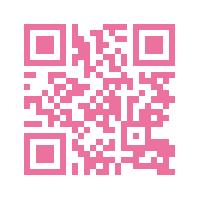
Informieren, vernetzen, durchstarten: Studium und Ausbildung in Deutschland
Die ZfA lädt ab Ende September gemeinsam mit dem DAAD, DIAG USA und Forum Deutsch zu einer dreitei ligen, kostenlosen Online-Informationsreihe zum Thema Studium und Ausbildung in Deutschland ein. Die Veranstaltungsreihe findet auf Englisch statt und richtet sich an Lehrkräfte, Schülerinnen und Schüler sowie Eltern: Ziel ist es, Antworten zu geben auf alle wichtigen Fragen rund um den Weg an eine deutsche Hochschule oder in eine berufliche Ausbildung. Lehrkräfte werden ausdrücklich gebeten, die Informationen zu dieser Veranstaltungsreihe an ihre Schülerinnen und Schüler sowie deren Eltern weiterzugeben, damit möglichst viele Interessierte von diesem Angebot profitieren können.
Teil 1 – Studium in Deutschland
25. September 2025 | 19:30 Uhr EDT
Hier erfahren die Teilnehmenden, welche Voraussetzungen sie mit einem US High School Diploma oder dem International Baccalaureate (IB) erfüllen müssen, um in Deutschland zu studieren. Außerdem wird der Bewerbungsprozess erklärt und die vielfältigen Studien- und Ausbildungsangebote werden vorgestellt.
Teil 2 – Treffen Sie Top-Universitäten, Fachhochschulen und Studienkollegs
29. September 2025 | 19:30 Uhr EDT
VertreterInnen renommierter Universitäten, Fachhochschulen (Universities of Applied Sciences) und Studienkollegs stellen ihre Studienangebote, ihr Campusleben und ihre Unterstützungsangebote für internationale Studierende vor. Im Anschluss können die Teilnehmenden in Breakout-Räumen direkt Fragen an die Institutionen stellen und wertvolle Tipps aus erster Hand erhalten.
Teil 3 – Berufsausbildung, Duales Studium & Praktika
11. Oktober 2025 | 14:00 Uhr EDT
Der dritte Teil unserer Reihe widmet sich den vielfältigen Möglichkeiten, in Deutschland eine Berufsausbildung, ein duales Studium oder ein Praktikum in einem Unternehmen zu absolvieren. Die Teilnehmenden erfahren, wie sich Theorie und Praxis optimal verbinden lassen, um wertvolle Berufserfahrung zu sammeln und hervorragende Karrierechancen zu eröffnen. Auch hier gibt es die Möglichkeit, den VertreterInnen der teilnehmenden Hochschulen und Firmen individuelle Fragen zu stellen.
Für jeden der drei Teile ist eine separate Anmeldung erforderlich. Die Registrierung erfolgt über die Webseite von Forum Deutsch. Dort findet sich auch ein Flyer, den Sie gerne an Schülerinnen und Schüler sowie Eltern weitergeben können.
Hier der Link zur Anmeldung: https://www.forumdeutsch.org/forum -aktuell
Ansprechpartner: Robert Schatz, atlanta@auslandsschulwesen.de
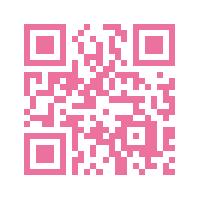
Link zur Anmeldung
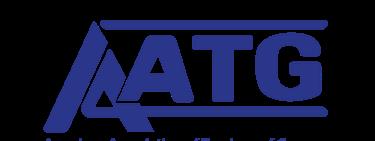

Teachers who purchase 75 or more AATG National German Exams qualify for a FREE Avant STAMP test in any language. Use the STAMP test to earn a Global Seal of Biliteracy! Remote proctoring fee of $20 is required.
Access to discounted pricing ($19.90/test) for Avant STAMP 4S and 4Se for teachers and their students in German.
∙ Qualify for State and/or Global Seals of Biliteracy.
∙ Enable students to earn Credit by Exam and up to 16 college credits as recommended by ACE.
∙ Benchmark language program growth and demonstrate program quality.
Discounted pricing on a one-year license for Avant ADVANCE, Avant’s online teacher training tool that allows teachers to earn Professional Development Units.
∙ Helps you reach a deeper understanding of profciency levels.
∙ Learn how to rate student responses and receive immediate feedback on rating accuracy.
∙ Help language students better understand their own profciency levels and set attainable goals.
Visit avantassessment.com/aatg to access your benefts!
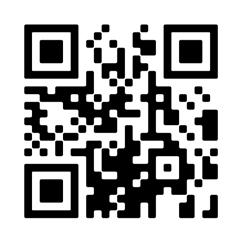
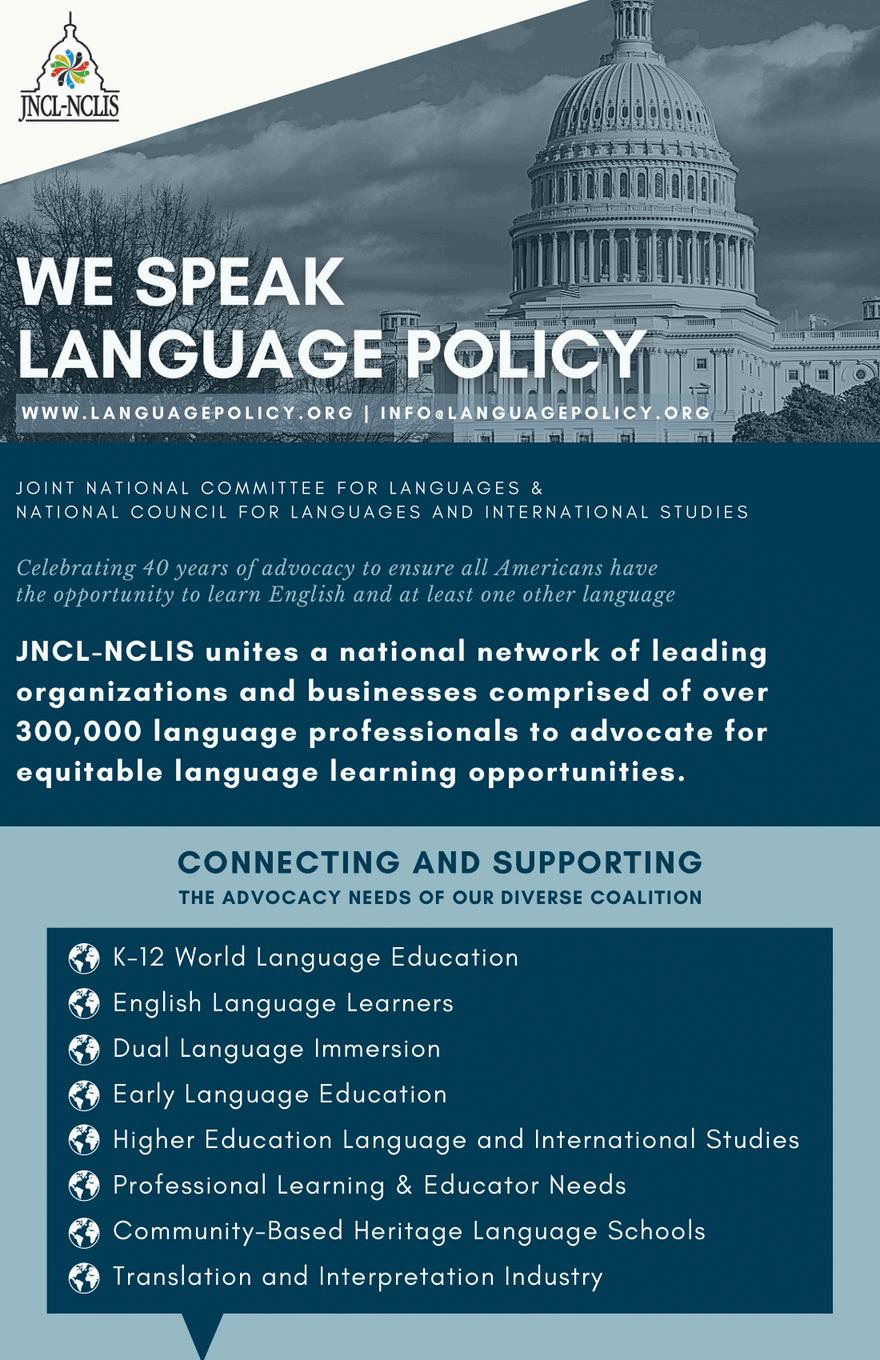
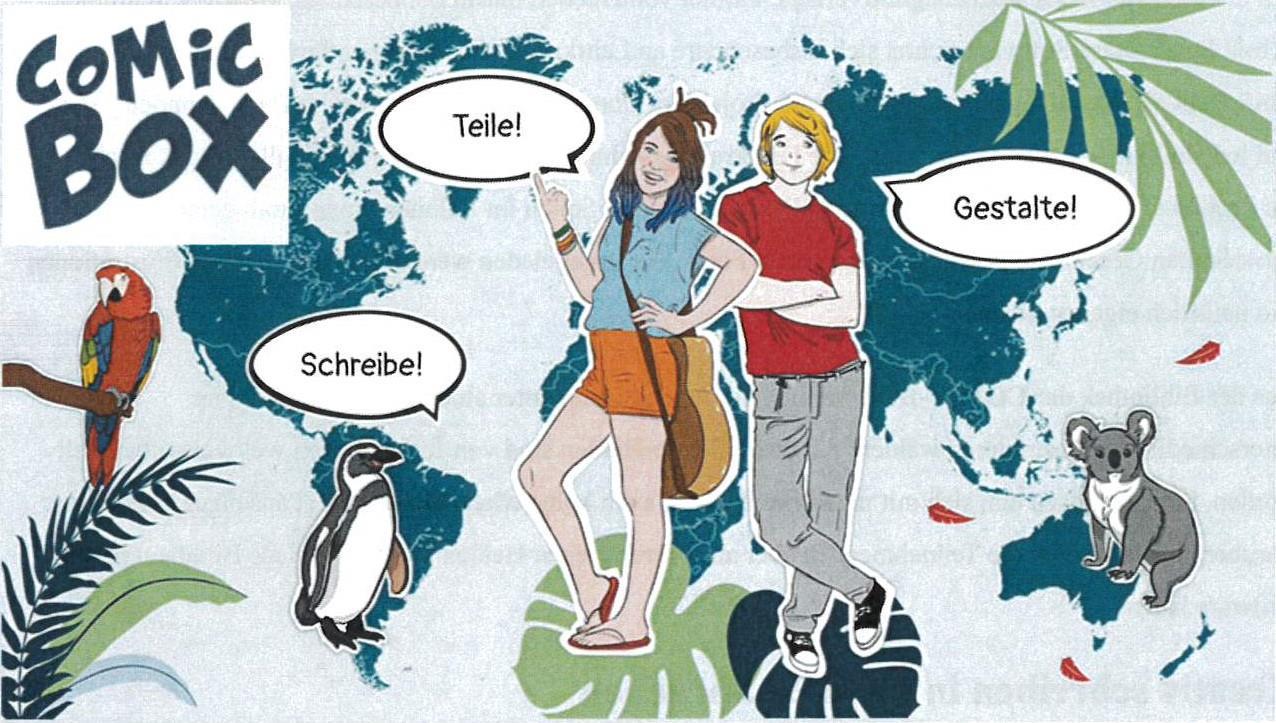
© KlangbildVerlag
Kreatives Schreiben ist eine Art des Schreibens, bei der die Schreibenden ihre eigenen Ideen, Gedanken und Gefühle einbringen können. Es geht weniger um eine bestimmte Form, sondern um den kreativen Umgang mit Inhalt und Sprache.
Deswegen eignet sich diese Technik auch so hervorragend als Schreibtraining für den Fremdsprachenunterricht: Lernende können sich sehr persönlich einbringen, sich mit dem beschäftigen, was sie interessiert oder ihre Lebenswirklichkeit berührt. Das Schreiben darüber hilft, den Wortschatz zu erweitern. Es festigt Kenntnisse in Bezug auf Grammatik und verhilft zu mehr Routine im Umgang mit der Syntax.
Das Überarbeiten der eigenen Texte trägt dazu bei, Sprache zu reflektieren und seine eigene Ausdrucksweise zu finden. Und letztlich stärkt es das Selbstbewusstsein, am Ende eines Schreibprozesses ein Produkt in Händen zu halten. Wenn dies alles noch in einem kooperativen Prozess stattfindet, kann das den Zusammenhalt in einer Gruppe stärken und das gemeinsame Lernen fördern.
Mit der COMiC-BOX des KlangbildVerlags, Partner von Hueber, macht kooperatives, kreatives Schreiben richtig Spaß. Diese Software richtet sich insbesondere an Lehrkräfte, die mit Jugendlichen arbeiten. Sie ermöglicht es, dass alle gemeinsam an einem Projekt im Comicstil arbeiten können und sich dennoch jeder und jede individuell ausdrücken kann. Die Lehrkraft als Administrator vergibt individuelle Logins an alle, die am Projekt teilnehmen. Jede/r kann also individuelle Comic-Seiten im Rahmen einer vorab gemeinsam entwickelten Geschichte gestalten: mit eigenen Fotos, die hochgeladen werden können, eigenen Illustrationen und natürlich eigenen Texten.
Aus der Bibliothek der COMiC-BOX können die Jugendlichen unter einer enormen Anzahl an unterschiedlichen Charakteren wählen. All diese Comic-Helden sind von Jugendlichen weltweit entwickelt worden. Sie laden dazu ein, sich mit unterschiedlichen, auch kultu rellen Blickwinkeln, auseinanderzusetzen. Darüber hinaus können die Teilnehmenden aber auch ihre eigenen Helden kreieren und als Bilddatei in die Software laden.
Hinsichtlich der Textarbeit bietet die COMiC-BOX wie bei Comics oder Graphic-Novels üblich die Möglichkeit, Textboxen und Sprechblasen auf der zu gestaltenden Seite einzufügen. Das unterstützt das kreative Schreiben sowohl in Hinblick auf die Produktion von beschreibenden, erzählenden Texten als auch Dialogen.
Da die Software insgesamt 20 Sprachen (Deutsch als Fremdsprache und weitere 19 Fremdsprachen) anbietet, ermöglicht sie in vielen Fällen auch, den produzierten Text in die Muttersprache oder umgekehrt zu übersetzen. Die direkte Reflexion der eigenen LI in B ezug auf andere Sprachen begleitet so den Schreibprozess und kann immer wieder zum Uberarbeiten der eigenen Texte anregen.
Das Besondere am kreativen Schreiben mit der COMiC -BOX ist dank der vielen graphischen Gestaltungsmöglichkeiten aber auch, dass die Teilnehmenden am Ende des Schreibprozesses ein wirklich professionell gestaltetes Produkt in Händen halten können. Die einzelnen Seiten lassen sich ausdrucken und gegebenenfalls sogar in Buchform bringen. Ein As pekt, der ganz bestimmt die Motivation der Lernenden steigern wird.
Blog.hueber-sprachen.de Veröffentlicht am 7. Juli 2025

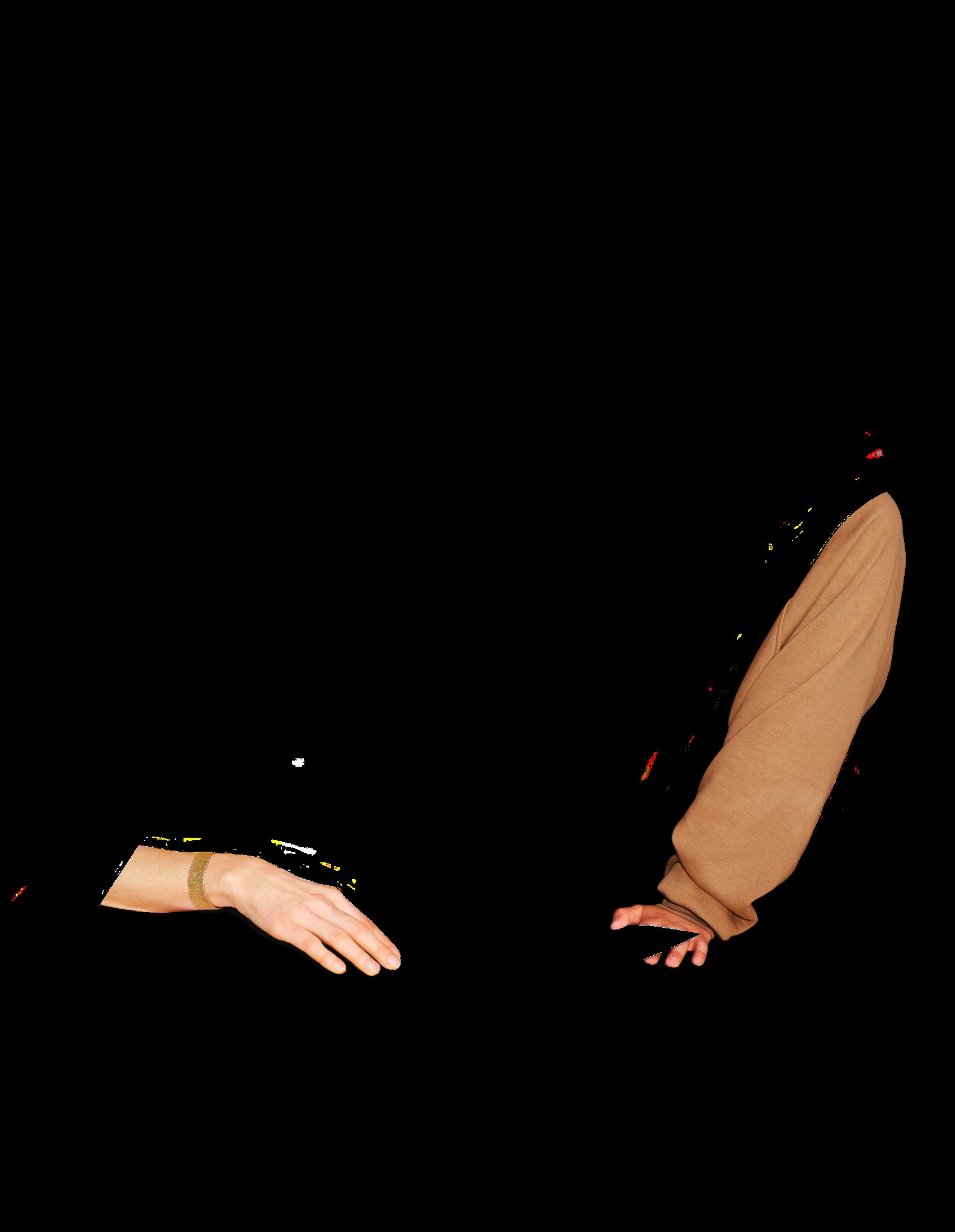
Prima aktiv erleichtert den Einstieg in die deutsche Sprache durch spielerische Lernund Aufgabenformate, die für gute Laune und schnellen Lernerfolg im DaF-Unterricht sorgen.
Aktivierende und kooperative Aufgaben
Lieder, humorvolle Vlogs, Spiele und Rätsel
Umfangreiches Material (Print und digital) für einen hybriden und interaktiven Unterricht
Alle Bände von Niveau A1 bis B1 sind erschienen
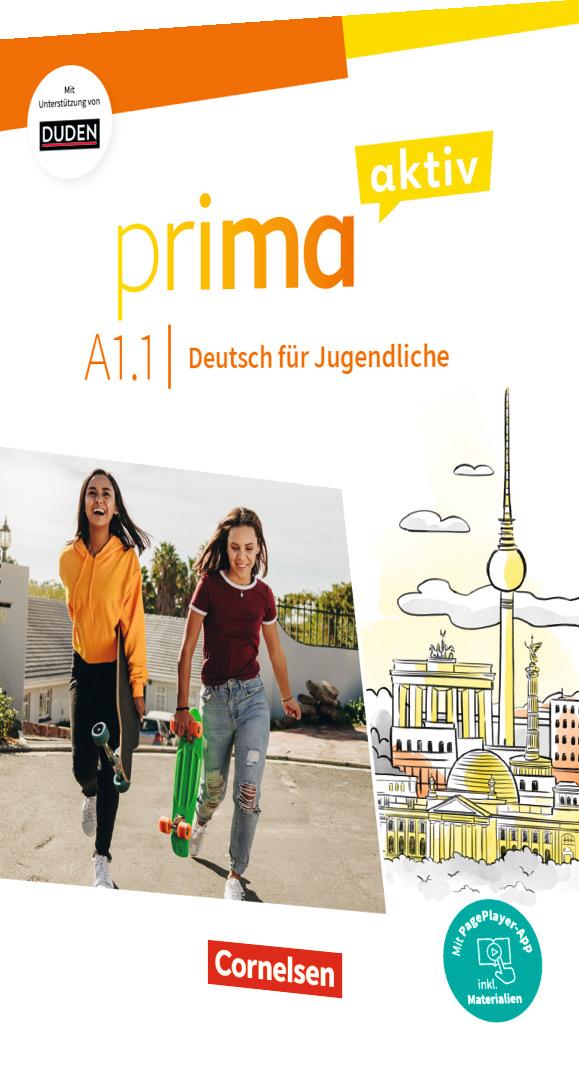
Hier mehr erfahren: crnl.sn/prima-aatg
American Association of Teachers of German, Inc. 112 Haddontowne Court, #104